Meet the members of the National Indigenous University Senior Leaders’ Association (NIUSLA)
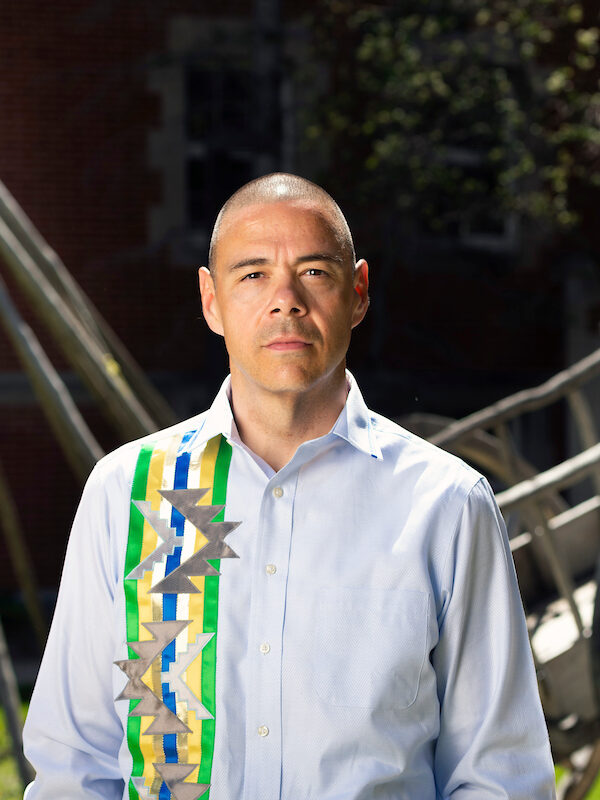
Dr. Chris Andersen
Dean, Faculty of Native Studies
University of Alberta
cta1@ualberta.ca
Dr. Chris Andersen is a Professor, and the Dean of the Faculty of Native Studies at the University of Alberta . He is the author of two books including, with Maggie Walter, Indigenous Statistics: A Quantitative Indigenous Methodology (Left Coast Press, 2013) and “Métis”: Race, Recognition and the Struggle for Indigenous Peoplehood (UBC Press, 2014), which recently won the Native American and Indigenous Studies Association’s Best Subsequent Book Award for 2015. With Evelyn Peters, he also co-edited the recently published Indigenous in the City: Contemporary Identities and Cultural Innovation (UBC Press, 2013). Andersen was a founding member of the Native American and Indigenous Studies Association Executive Council, is a member of Statistics Canada’s Advisory Committee on Social Conditions and is editor of the journal aboriginal policy studies. He was recently named to the Royal Society of Canada’s College of New Scholars, Artists and Scientists.
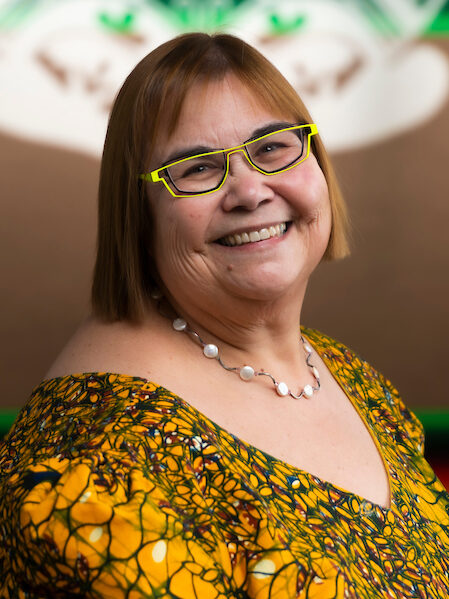
Dr. Florence Glanfield
Vice-Provost, Indigenous Programming and Research
University of Alberta
florence.glanfield@ualberta.ca
Dr. Glanfield is a member of the Métis Nation of Alberta. In her role as Vice-Provost (Indigenous Programming and Research), Dr. Glanfield led the development, consultation, and approval of the Indigenous Strategic Plan in support of the objectives articulated in For the Public Good, build and nurture positive relationships with Indigenous communities, support the work of Faculties and Departments to Indigenize curricula across programs, and foster a supportive environment for Indigenous faculty, students, and staff.
Dr. Glanfield comes to the Vice-Provost position from her previous role as Professor and Chair of the Department of Secondary Education in the Faculty of Education, where her primary areas of scholarship include mathematics teacher education, Aboriginal curriculum perspectives, and relational research methodologies. She is an Affiliated Faculty member with the Centre for Research for Teacher Education and Development.
For more information about Dr. Glanfield click HERE.
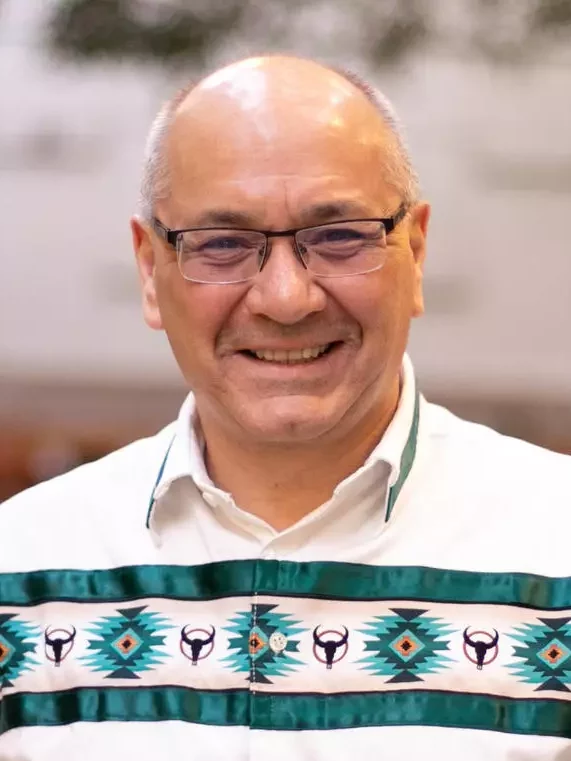
Dr. Michael Hart (on admin leave from July 1, 2023 – June 30, 2024)
Vice-Provost, Indigenous Engagement
University of Calgary
michael.hart@ucalgary.ca
Michael Anthony Hart is a citizen of Fisher River Cree Nation. As a father of two teenage boys who are exploring the world and figuring out how to reach their dreams, he sees the need for and is deeply committed to, creating greater opportunities for Indigenous people. While he spent much time on reserve with his grandparents and extended family, he was raised in Winnipeg at a time when the population of Indigenous peoples was small and stereotypes of the people were numerous.
Dr. Hart’s career has been focused on Indigenous Peoples and ways of helping that will enable the University of Calgary to realize its goals for indigenization on its campuses. His approach is about connecting with and learning from Indigenous Elders and Traditional Knowledge Keepers to explore how these philosophies can guide us, transcend boundaries and take incremental steps to change the conversation between different cultures.
Since 2012, Dr. Hart has held a Canada Research Chair in Indigenous Knowledges and Social Work through the University of Manitoba. He has also held the role of acting director of the Master of Social Work in Indigenous Knowledges program at the University of Manitoba.
Hart holds a BSW, MSW and PhD in Social Work from the University of Manitoba, as well as a BA in Psychology from the University of Manitoba.
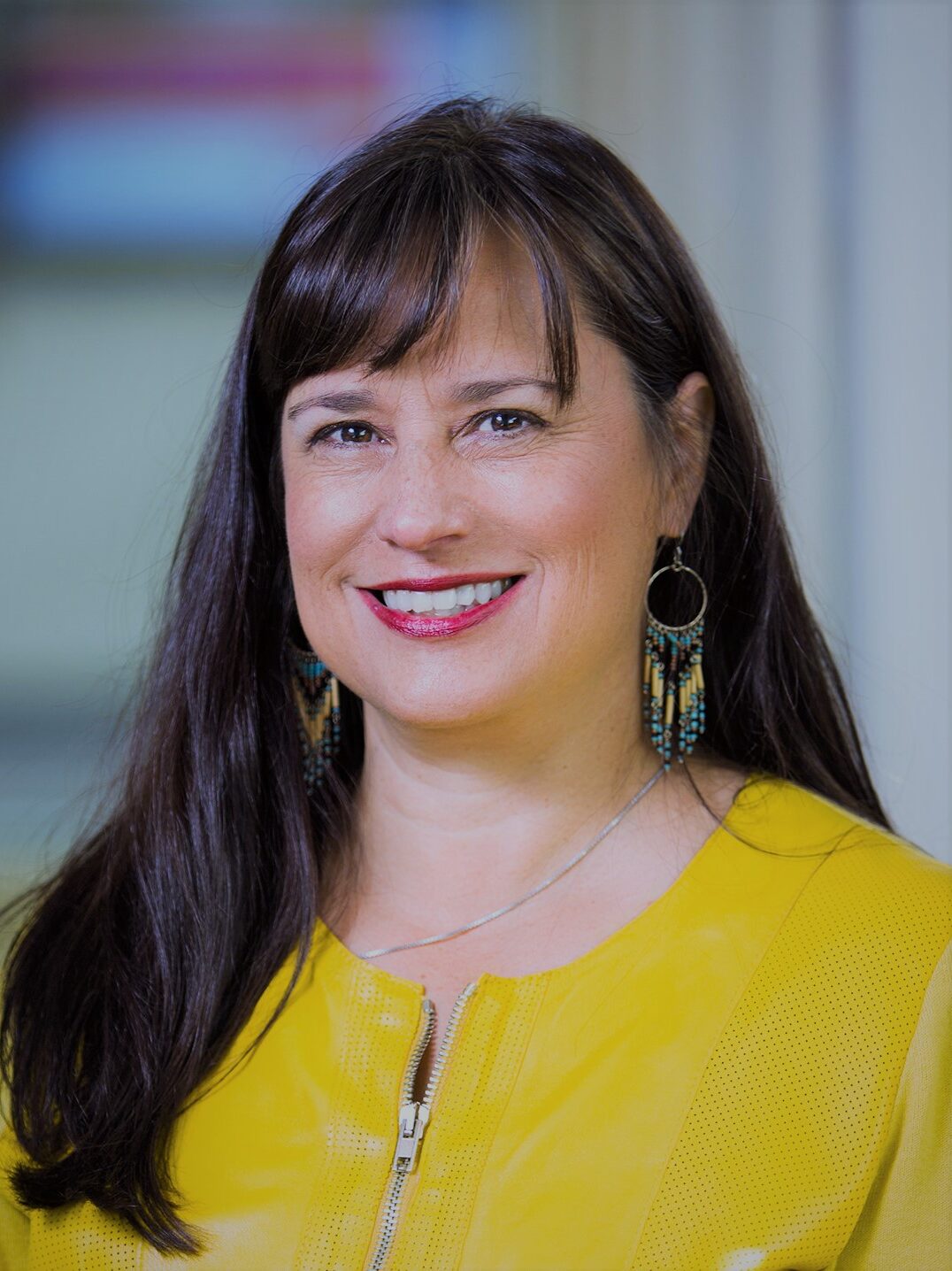
Dr. Shawna Cunningham
Director, Indigenous Strategy
Office of the Vice Provost (Indigenous Engagement)
University of Calgary
shawna.cunningham@ucalgary.ca
Dr Shawna Cunningham (EdD), Métis / Cree from Alberta, is the Director of the Indigenous Strategy with the Office of the Vice Provost (Indigenous Engagement) and the former Director of the Indigenous student centre (Writing Symbols Lodge) at the University of Calgary. Shawna was one of four co-chairs responsible for the development of the Indigenous Strategy ii’ taa’poh’to’p at University of Calgary and has worked in the field of Indigenous post-secondary education for thirty years, with expertise in Indigenous student services.
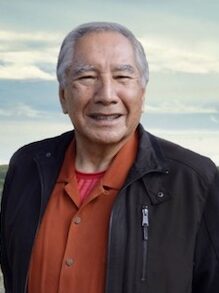
Dr. Leroy Little Bear
Vice-Provost, Iniskim Indigenous Relations
University of Lethbridge
As one of Canada’s most respected Indigenous academic voices, Dr. Leroy Little Bear was made an Officer of the Order of Canada in 2019, received the University of Lethbridge Ingrid Speaker Research Medal in 2017, was awarded the Alberta Order of Excellence in 2016 and holds honorary doctorates from the University of Lethbridge and the University of Northern British Columbia. He is also an honorary Eminent Scholar at Red Crow Community College. Little Bear holds a Juris Doctor from the University of Utah, a BA from the University of Lethbridge, and an Associate Arts Degree in Forestry from Wenatchee Valley College.
Little Bear has been a mentor and consultant on Indigenous matters at local, provincial, national and international levels, and helped establish the Native American Studies program at the U of L. His writings and work have greatly influenced legal and policy realms including the United Nations Declaration on the Rights of Indigenous Peoples, the re-establishment of the Blackfoot Confederacy and the First Nations Buffalo Treaty. He is the author of several esteemed publications and was the first Indigenous person to be quoted by the Supreme Court of Canada. Little Bear was born and raised on the Blood Reserve (Kainai First Nation) west of Lethbridge.
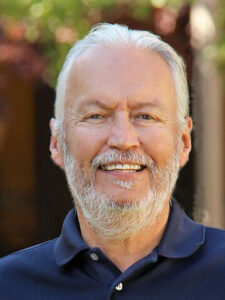
John Fischer
Interim Associate Vice-President, Indigenization and Decolonization
Mount Royal University
ajfischer@mtroyal.ca
John Fischer, is Nehiyaw and a proud member of the Cowessess First Nation, currently holds the position of Interim Associate Vice President of Indigenization and Decolonization at Mount Royal University. In addition to this role, he is also an active participant in the President’s EDI Advisory Committee, serves as an MRU Ashoka Change Leader, and contributes to the Ashoka Canada Indigenous Advisory. Prior to his current role, Mr. Fischer was the Director of the Iniskim Centre and was a high school principal at the Calgary Board of Education before retiring. His ongoing commitment is evident in his continuous advocacy for students and faculty alike. Mr. Fischer’s work revolves around fostering reciprocal relationships within the community, championing curriculum change initiatives, and persistently advancing and developing the Indigenous Strategic Plan.
John has generously dedicated several years of his life to the Indigenous Gathering Place Society of Calgary, contributing significantly towards the creation and development of a communal space for urban Indigenous peoples. In addition, he holds a position on the Advisory Committee of Dignity Forum, where he champions human rights education at both systemic and grassroots levels. His commitment extended to his past role on the Turtle Island Institute Steering Committee and as a founding Director of the Connections Education Society. Furthermore, John has served as Chair of the Board for the Calgary Foundation and continues to be an active volunteer.
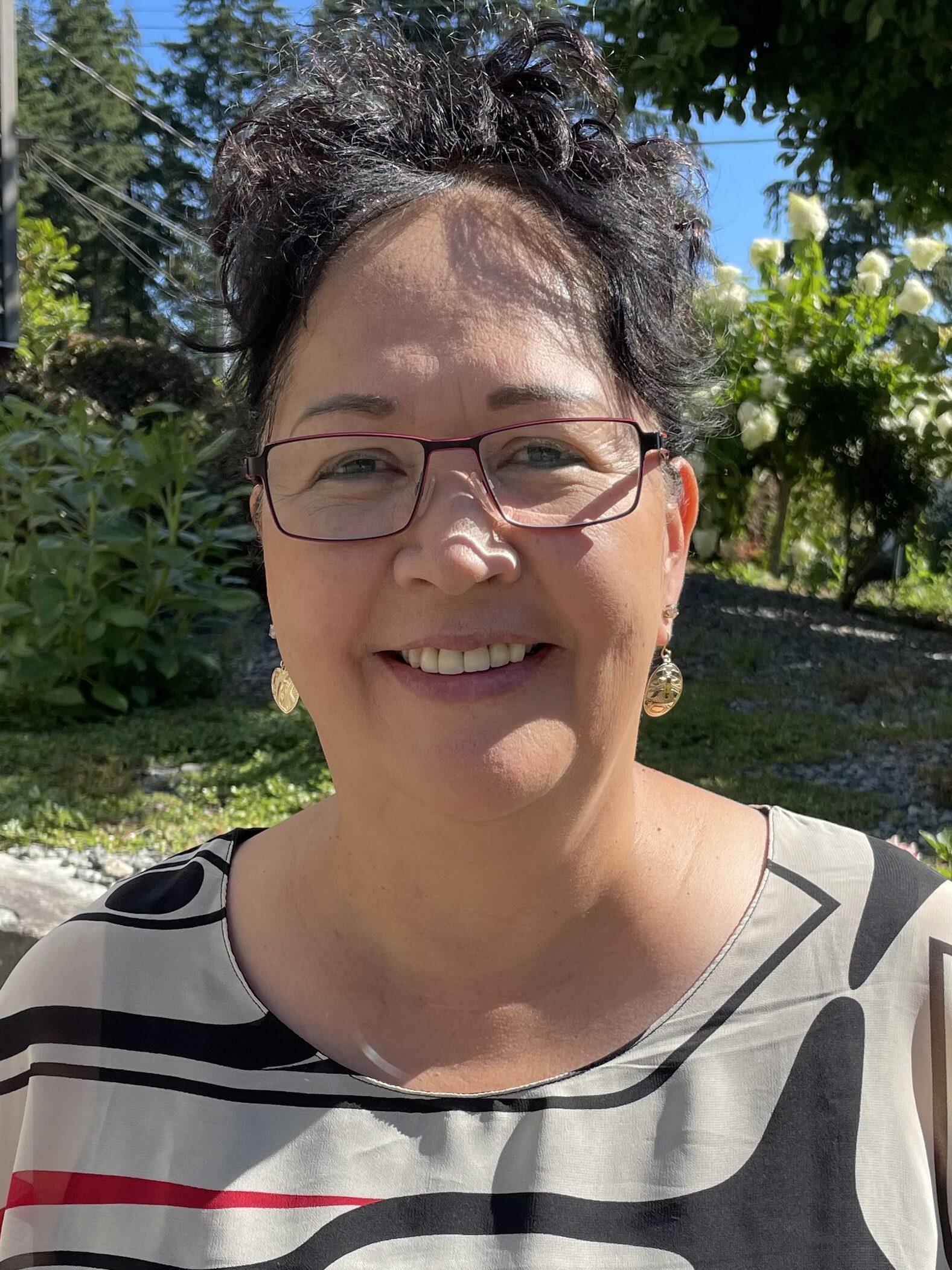
Gwa’lgum’ax Gayle Bedard
Associate Vice-President, Indigenous Leadership
Kwantlen Polytechnic University
gayle.bedard@kpu.ca
Gayle is Tsimshian, born and raised in an isolated First Nation community in northern BC. Her Indigenous name, Gwa’lgum’ax, means “Water on Fire.”
Gayle previously served as Indigenous Coordinator with the Council of Ministers of Education Canada (CMEC). Prior to this she was District Principal, Indigenous Education with the Coquitlam School District and the Surrey School District. She has also worked with the Nicola Valley Institute of Technology, the Yukon Government, First Nation communities, and a consultant for GGAX Consulting.
Along with several other professional credentials, Gayle has two master’s degrees from Royal Roads University and UBC. Her undergrad degree is a Bachelor of Education through the NITEP program at UBC.
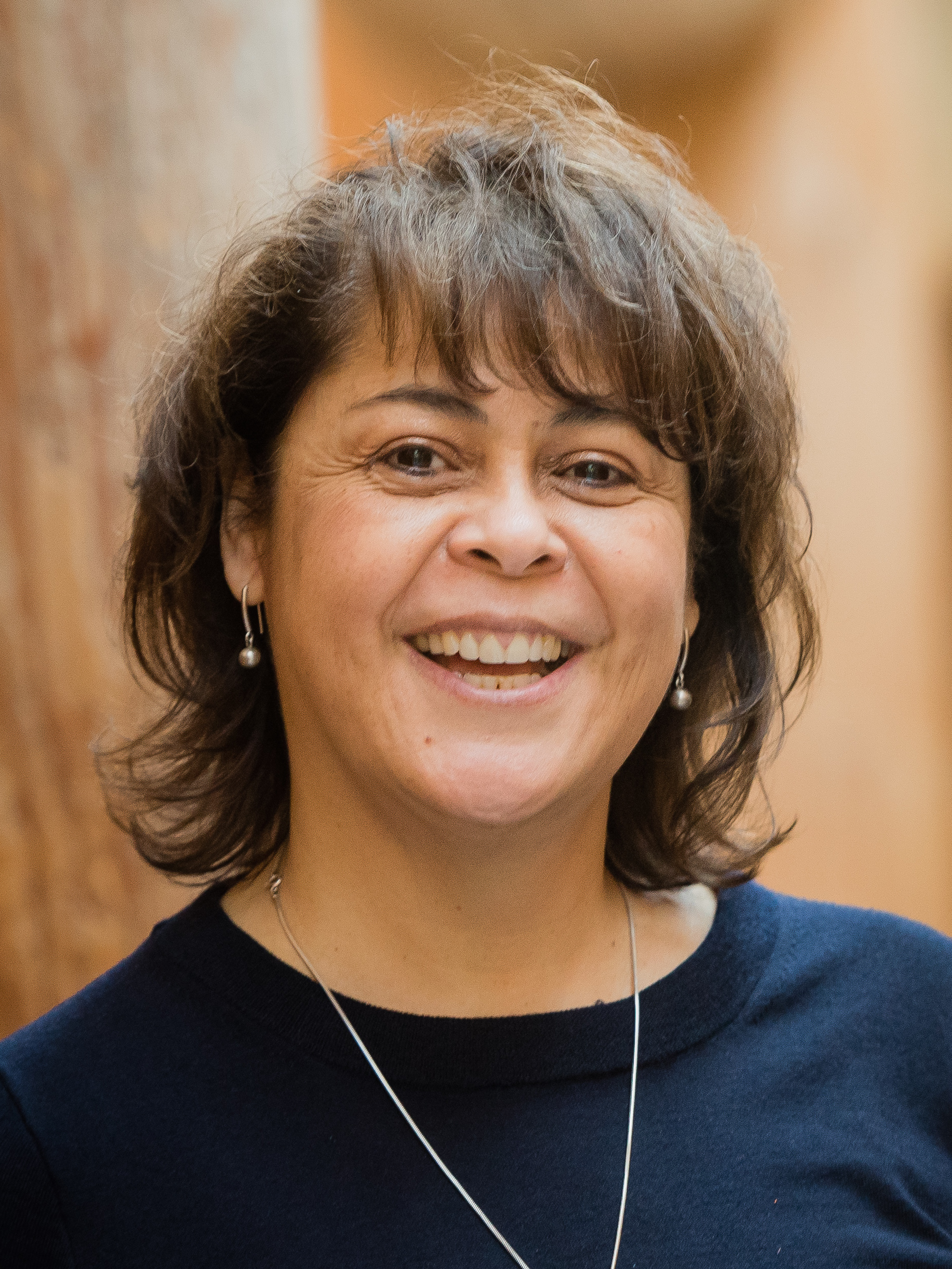
Dr. Jan Hare
Dean, Pro Tem, Faculty of Education
University of British Columbia
jan.hare@ubc.ca
Dr. Jan Hare is an Anishinaabe-kwe scholar and educator from the M’Chigeeng First Nation, located in northern Ontario, Canada. She is Professor and Dean pro tem in the Faculty of Education at the University of British Columbia. In addition, she holds a Canada Research Chair (Tier 1) in Indigenous Pedagogy. Her research is concerned with transforming educational institutions from early childhood, K-12 schooling through to post-secondary education by centering Indigenous knowledges and pedagogies in teaching and learning. This work has led to the development of the Massive Open Online Course (MOOC), Reconciliation Through Indigenous Education, which has been taken by over 70,000 people worldwide.
Her current research explores the instructional practices of post-secondary educators incorporating Indigenous knowledges and perspectives in to higher education classrooms through collaborative inquiry. In addition, she is engaged in theorizing Indigenous-led teacher education through programs narrating their own story bundles.
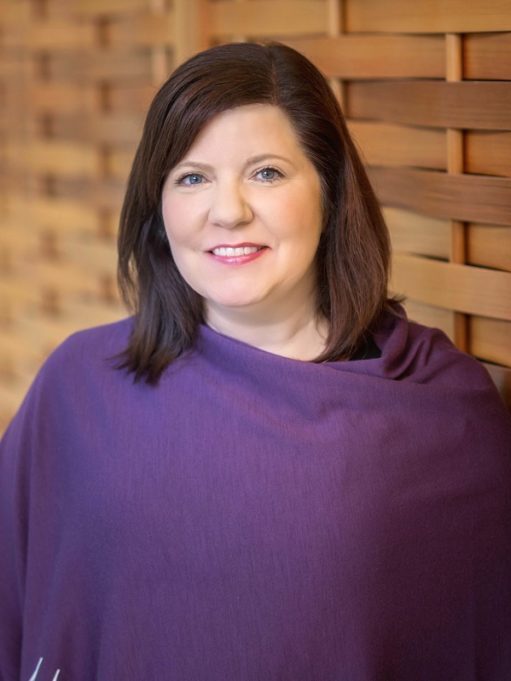
Dr. Sheryl Lightfoot
Senior Advisor to the President on Indigenous Affairs
University of British Columbia
sheryl.lightfoot@ubc.ca
Sheryl Lightfoot (Anishinaabe, Lake Superior Band) is Canada Research Chair of Global Indigenous Rights and Politics at the University of British Columbia, where she holds faculty appointments in Political Science and the School of Public Policy and Global Affairs as well as an association with the Institute for Critical Indigenous Studies. She serves as the Vice Chair and North American Member on the UN Expert Mechanism on the Rights of Indigenous Peoples (EMRIP) as well as Senior Advisor to the UBC President on Indigenous Affairs, where she is the lead on UBC’s Indigenous Strategic Plan and directs the Office of Indigenous Strategic Initiatives.
She is currently President of the Native American and Indigenous Studies Association (NAISA). Her research focuses on Indigenous global politics, especially Indigenous rights and their implementation in global, national and regional contexts.
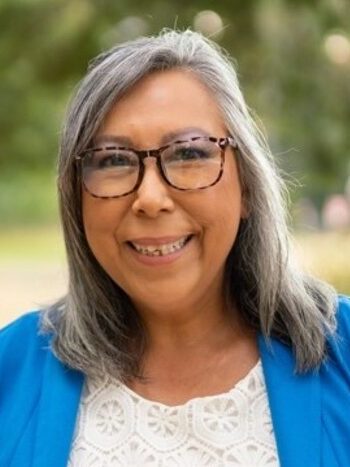
Dr. Shauneen Pete
Chair, Emerging Indigenous Scholars Circle (EISC)
Royal Roads University
Shauneen.Pete@royalroads.ca
Shauneen Pete is from Little Pine First Nation (Treaty 6 territory) and Cowessess First Nation (Treaty 4 territory). Her father is the late Jacob Pete, and my mother is Eileen Pete (Agecoutay). Her family is Cree, Dakota, and Saulteaux. She grew up in Regina and Saskatoon (Saskatchewan). She graduated from the Indian Teacher Education Program (ITEP) at USask, where she also completed a Masters in Educational Leadership. She completed her PhD at the University of Arizona, at the Center for the Study of Higher Education. For the past 22 years she has worked as a professor and university administrator.
Shauneen Pete is the Chair, Emerging Indigenous Scholars Circle (EISC) at Royal Roads University in Victoria BC.
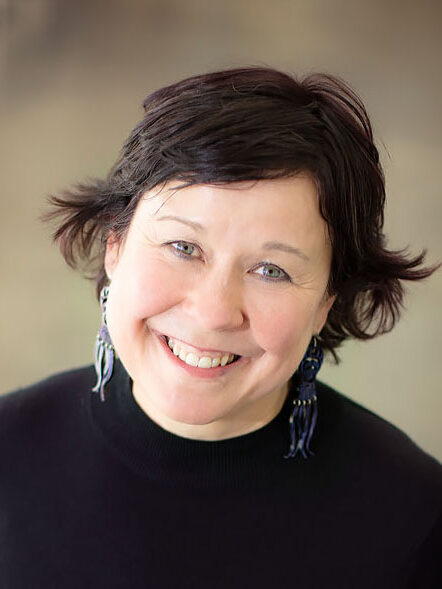
Dr. Deborah Saucier
President and Vice-Chancellor
Vancouver Island University
deborah.saucier@viu.ca
Born in Saskatoon, Dr. Deborah Saucier is a member of the Métis Nation of Alberta. She was appointed President and Vice-Chancellor of Vancouver Island University in July 2019. Dr. Saucier holds a PhD in psychology from the University of Western Ontario and a BSc and MSc in psychology from the University of Victoria. She received her International Baccalaureate diploma from the Lester B. Pearson College of the Pacific in Metchosin, near Victoria.
Prior to joining VIU, Dr. Saucier was President of MacEwan University in Edmonton and Provost and Academic Vice-President of the University of Ontario Institute of Technology. Dr. Saucier is a distinguished researcher in both psychology and neuroscience. She was the Canadian Research Chair in Behavioural Neuroscience at the University of Lethbridge and Dean of Science at the University of Ontario Institute of Technology and has garnered numerous grants to support her research, including awards from Natural Science and Engineering Research Council (NSERC) and the Canadian Foundation for Innovation.
At Vancouver Island University, Dr. Saucier has guided the development and implementation of the institution’s first strategic plan.
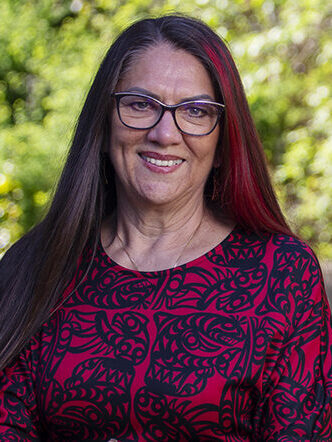
Qwul’sih’yah’maht Dr. Robina Thomas
Vice-President, Indigenous
University of Victoria
robinat@uvic.ca
Qwul’sih’yah’maht (Robina Thomas) is a member of Lyackson First Nation and has Snuy’ney’muxw and Sto:lo ancestry through her grandparents. Robina is currently the Vice-President, Indigenous and holds a faculty position in the School of Social Work. Robina was the inaugural Director and Executive Director of the Office of Indigenous Academic and Community Engagement, and inaugural Associate Vice-President, Indigenous. Her research focuses extensively on Indigenous women, children, residential schools, storytelling, and anti-colonial/anti-racist practices as a way of life. Her Master’s thesis focused on Kuper Island Residential School and her PhD. dissertation focused on Indigenous Women and Leadership — “Protecting the Sacred Cycle: Indigenous Women and Leadership.
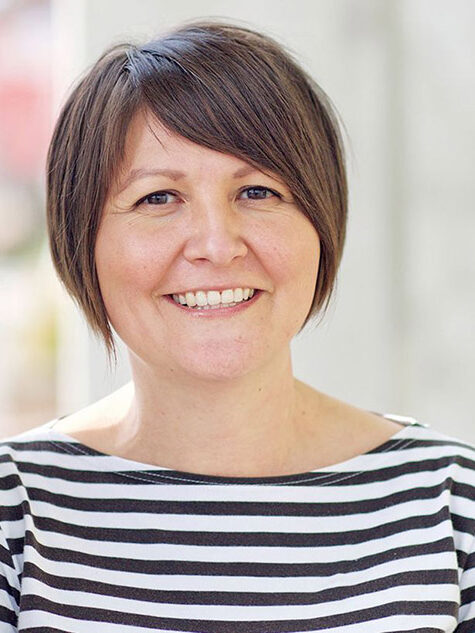
Adrienne Vedan
Senior Advisor to the Deputy Vice-Chancellor on Indigenous Affairs
University of British Columbia
adrienne.vedan@ubc.ca
A member of the Okanagan Indian Band, born and raised in the North Okanagan, Adrienne studied at Okanagan University College, earning a Bachelor of Arts degree in history. She joined UBC Okanagan on CREATE day in September 2008 as a member of the Aboriginal Access Program staff. She was appointed Director of Aboriginal Programs and Services in 2012.
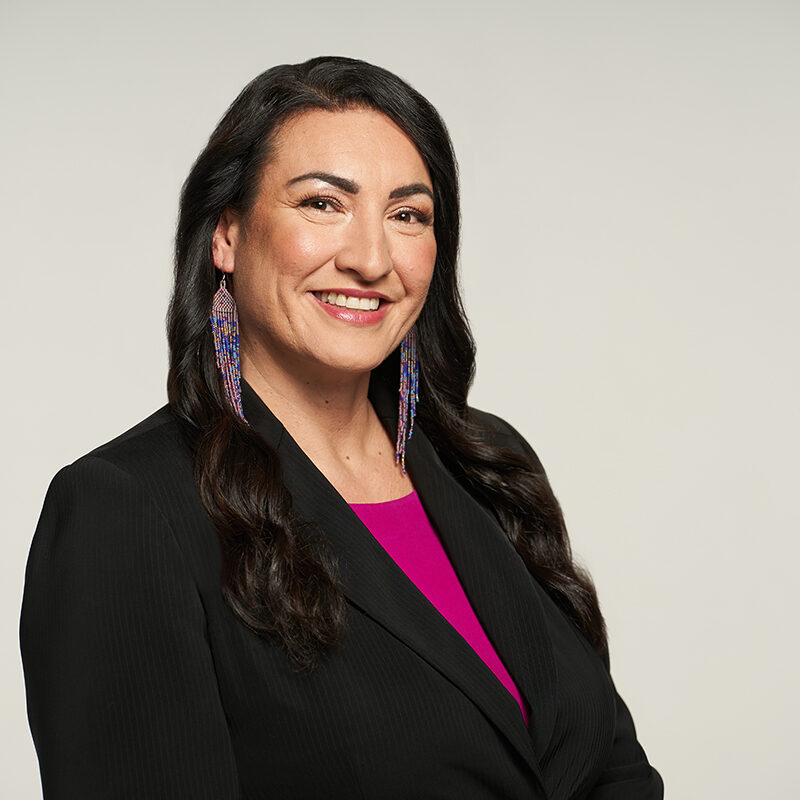
Angie Bruce
Vice-President (Indigenous)
University of Manitoba
Angie.Bruce@umanitoba.ca
Angie Bruce, Vice-President (Indigenous), University of Manitoba, is a proud Red River Métis woman tied to her home community of St. Laurent, Manitoba. Ms. Bruce grew up in the Métis culture and credits the strong maternal figures in her family for instilling a connection to the land, community, culture and spirit. She holds a master’s degree in business administration from UM’s Asper School of Business [MBA/09] and is currently a PhD Candidate at Nipissing University.
An impactful and collaborative leader, Ms. Bruce brings experience and success working with First Nations, Inuit and Métis people and Nations, communities, local, regional and federal governments and organizations, and across the non-Indigenous public, private and non-profit sectors. Prior to joining the University of Manitoba on February 1, 2024, Ms. Bruce was the Assistant Deputy Minister of Natural Resources Canada’s Nòkwewashk sector – the first Government of Canada departmental team to be gifted its name by Indigenous Elders.
Ms. Bruce will advance UM’s policy, research and programming that bolsters Reconciliation and Indigenous self-determination, and continue the legacy of exemplary leadership for the Vice-President (Indigenous) portfolio.
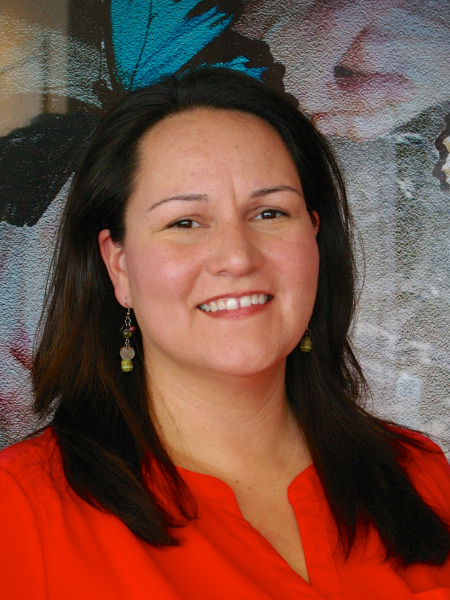
Christine Cyr
Associate Vice-President Indigenous – Students, Community and Cultural Integration
University of Manitoba
christine.cyr@umanitoba.ca
Christine Cyr is a Métis woman from Winnipeg. She grew up in the north end of Winnipeg in a large family. Christine overcame the obstacles of poverty by focusing on education. After finishing high school with honours, she graduated from the University of Manitoba with a Bachelor of Arts (major in Native Studies and a minor in Chemistry).
She has worked at the University of Manitoba for the last 20 years, first in Student Recruitment, and more recently as the Director of the Indigenous Student Centre. She has been actively involved in strategic planning, cultural education, and advocating for the disruption of anti-Indigenous racism.
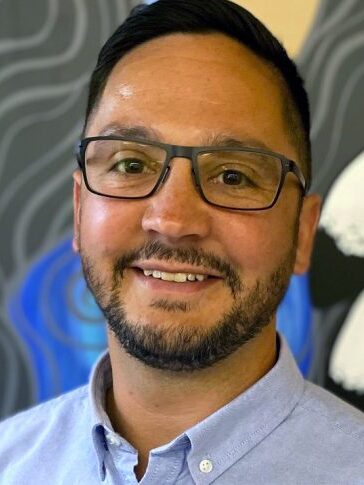
Chris Lagimodiere
Acting Indigenous Advisor to the President
Brandon University
lagimodierec@brandonu.ca
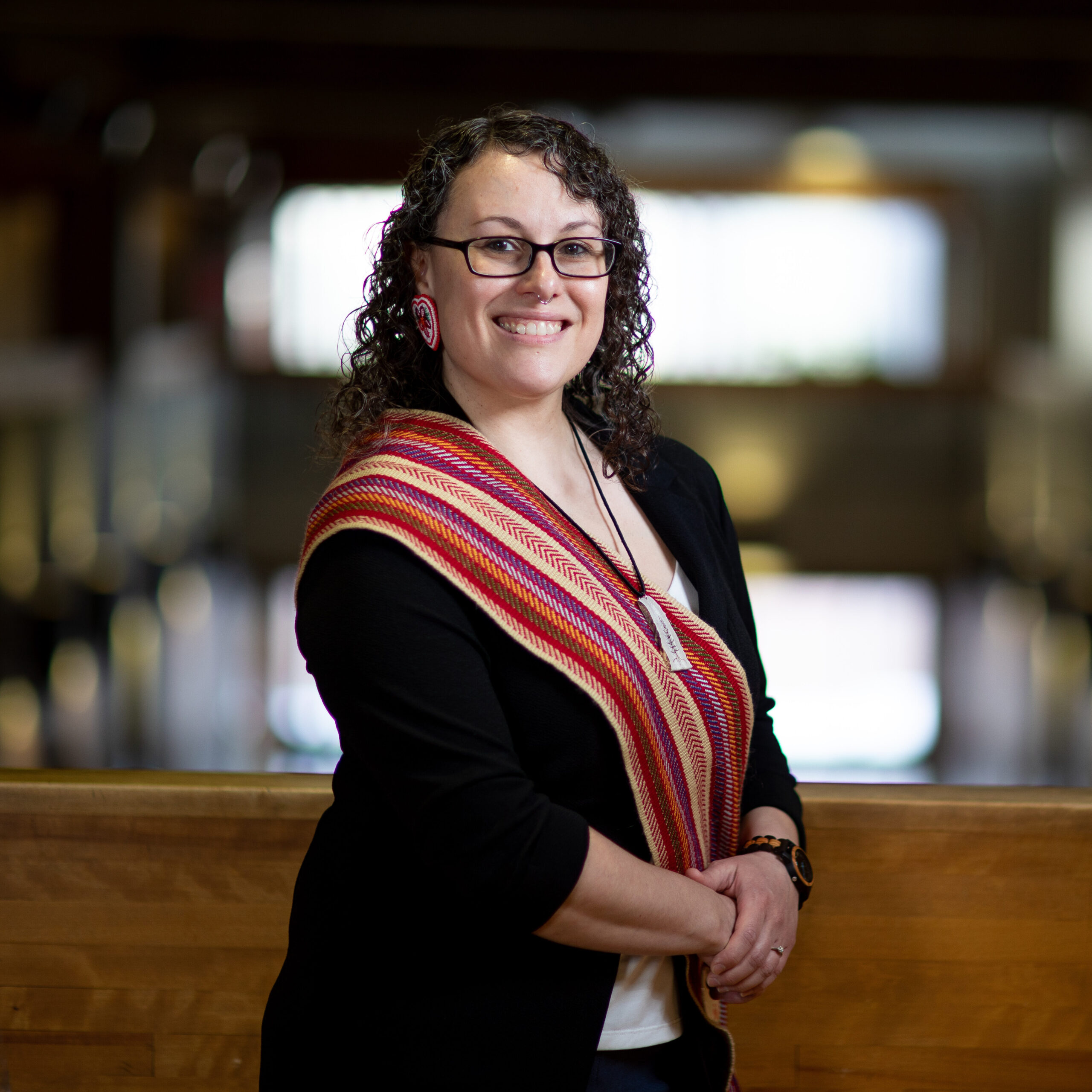
Chantal Fiola
Associate Vice-President, Indigenous Engagement
University of Winnipeg
c.fiola@uwinnipeg.ca
Chantal Fiola is Michif (Red River Métis) with family from St. Laurent and Ste. Anne, MB and is a registered citizen of the Manitoba Métis Federation. Dr Fiola is Associate Vice-President, Indigenous Engagement at the University of Winnipeg, where she is also an Associate Professor in the Department of Urban and Inner-City Studies. She is the award-winning author of two books, including, Returning to Ceremony: Spirituality in Manitoba Métis Communities. Currently, with funding from the Social Sciences and Humanities Research Council of Canada and the Manitoba Research Alliance, she is Project Director on a three-year research study titled, “Expressions of Métis Spirituality and Religion Across the Homeland.” She is part of the Circle of Editors for Pawaatamihk: Journal of Métis Thinkers, and a founding member of the Two-Spirit Michif Local (MMF). Chantal lives in Winnipeg with her wife and their daughter.
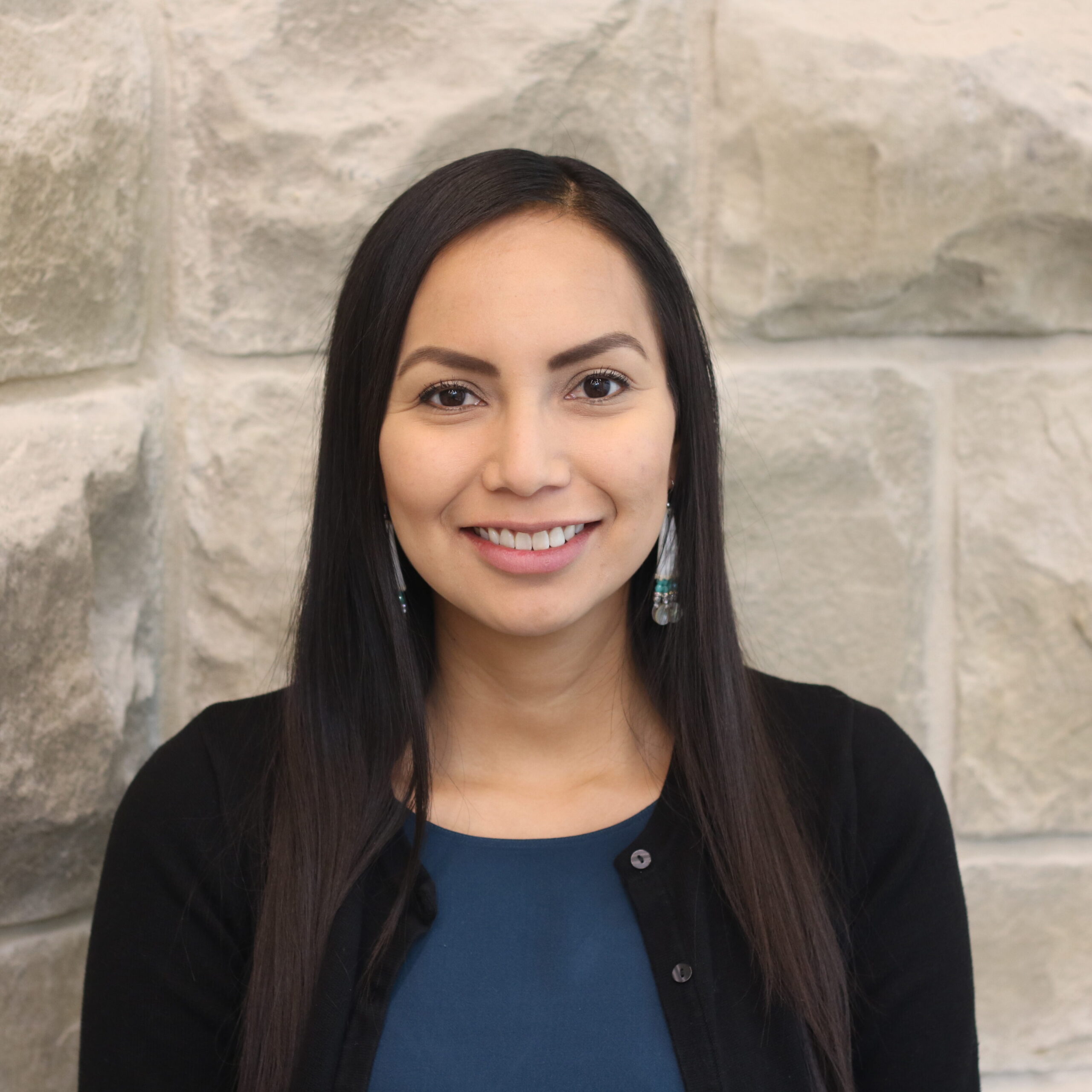
Angeline Nelson
Director, Community Learning and Engagement
University of Winnipeg
an.nelson@uwinnipeg.ca
Angeline Nelson is Anishinaabe and Ininew from Bigaawinashkoziibiing, Roseau River Anishinaabe First Nation, MB, where she was raised and maintains close connections. She earned her bachelor of science from the University of Manitoba in 2009.
She has been with the University of Winnipeg since 2015 and is the Director of Community Learning and Engagement where she runs the Wii Chiiwaakanak Learning Centre (WLC) – a community outreach centre that provides educational programming grounded in Indigenous knowledge and culture. During her time at UWinnipeg she has been committed to Indigenous language and cultural revitalization through community programming. Since 2018, she and her team have built equitable educational opportunities for Indigenous youth in STEM that now account for half of the centre’s engagement.
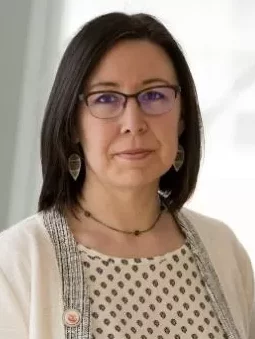
Catharyn Andersen
Vice-President (Indigenous)
Memorial University of Newfoundland
catharyn.andersen@mun.ca
Catharyn Andersen was appointed as Memorial’s first vice-president (Indigenous) on July 1, 2021. The position focuses on continuing to build meaningful relationships with Indigenous Peoples and advancing Indigenization at Memorial University. Catharyn served as Special Advisor to the President on Indigenous affairs since 2015.
As an administrative leader, with diverse expertise in Indigenization and decolonization, Catharyn is also extensively involved in Memorial University and in the community at large, sitting on multiple councils and boards, including chairing the President’s Advisory Committee on Indigenous Affairs, sitting on the Inuit Co-Management Board for the Akami-Uapishku-KakKasuak-Mealy Mountain National Park Reserve, as well as the Board of Directors for the YWCA St. John’s and the Labrador Inuit Capital Strategy Trust.
Catharyn is an Inuk from Nunatsiavut, born and raised in Labrador, with Inuit, Norwegian, English and Scottish ancestry. She holds a Bachelor of Arts in linguistics, a Master of Arts in linguistics, and a Master of Business Administration from Memorial University, as well as an International Baccalaureate diploma from Lester B. Pearson United World College of the Pacific in Victoria, B.C. She is a 2020 member of the Governor General’s Canadian Leadership Conference.
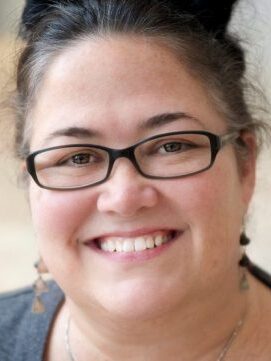
Kelly Anne Butler
Director, Indigenous Engagement and Reconciliation
Memorial University of Newfoundland
Kelly.butler@mun.ca
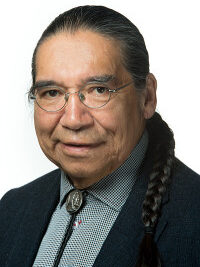
Stephen Augustine
Associate Vice-President, Indigenous Affairs and Unama’ki College
Cape Breton University
Stephen_Augustine@cbu.ca
Stephen Augustine is a Hereditary Chief of the Mi’kmaq Grand Council and the Associate Vice-President of Indigenous Affairs and Unama’ki College at Cape Breton University. He was the Curator of Ethnology for Eastern Maritimes in the Ethnology Services Division of the Canadian Museum of Civilization in Gatineau/Ottawa. He holds a Masters in Canadian Studies from Carleton University and a BA in Anthropology and Political Science from St. Thomas University. Mr. Augustine has shared his expertise in research and traditional knowledge with many organizations, including government departments, the Assembly of First nations, and various Aboriginal communities across Canada. He has been Elder Advisor to the Federal Court of Canada Judges, the Truth and Reconciliation Commission and the Human Rights Commission of Canada. In his role as Hereditary Chief of the Mi’kmaq Grand Council and by Elders’ training since an early age, he has a thorough command of traditional practices, his language and the history of his people.
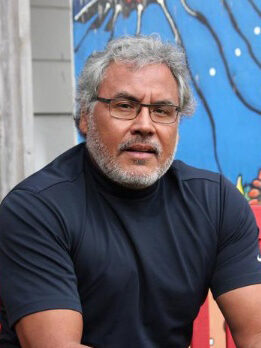
Patrick Small Legs-Nagge
Special Advisor to the MSVU on Indigenous Affairs
Mount Saint Vincent University
Patrick.SmallLegs-Nagge@msvu.ca
Patrick holds a Diploma in Social Work from Red Deer College, a Bachelor and Master of Social Work degree from Dalhousie University with a specialization in community development. He believes in life long learning and has acquired a Diploma in Management from Saint Mary’s University, and he attended Universite’ St Anne’s to acquire his bilingual levels.
Patrick is a member of the Piikani First Nation located in SW Alberta, although he has lived in Nova Scotia for the past 29 years. Patrick retired from the federal government in 2017 after 28 years and he finished his federal career with Health Canada as Director of Mental Wellness, First Nation and Inuit Health. He has had the opportunity to work with many federal departments including; Service Canada, Environment Canada, Indian and Northern Affairs Canada, Privy Council Office, Health Canada, Department of National Defense, Parks Canada, Department of Fisheries & Oceans. Much of his work was centered on an Indigenous portfolio.
Patrick is now the Special Advisor to Mount Saint Vincent University on Indigenous Affairs. He has been instrumental in helping faculties with Indigenizing their curriculum & programs and helping to decolonize the campus as a whole.
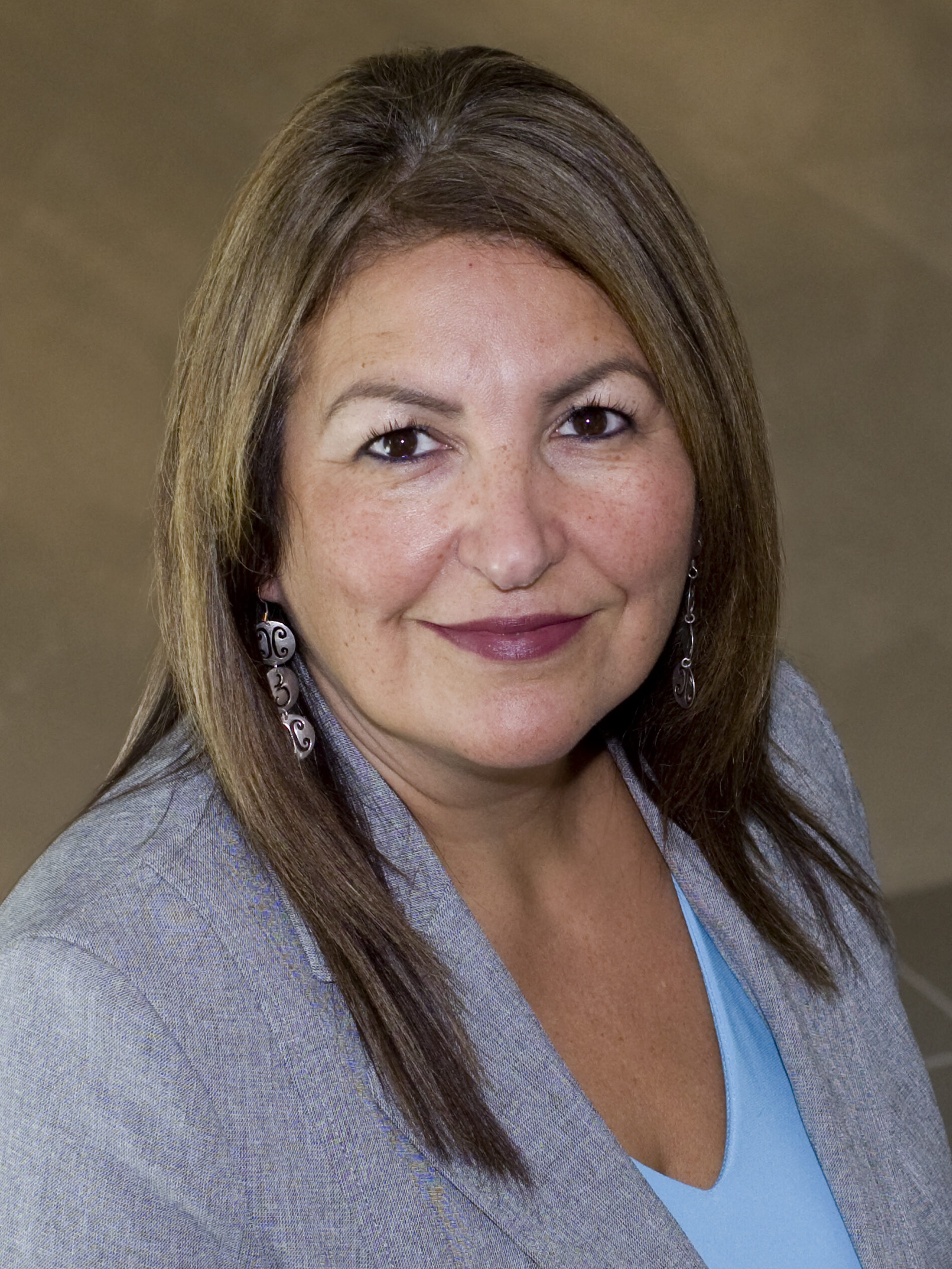
Laurianne Sylvester
Dean, Unama’ki College
Cape Breton University
Laurianne_Sylvester@cbu.ca
Laurianne Sylvester, is a Mi’kmaw woman, born and raised in Membertou First Nation, who has worked in education for over 20 years. Her educational and leadership journey began in her home community as an elementary school teacher. She served as Vice Principal of Membertou Elementary School. Laurianne continued as the Director of First Nation School Success Program (Academic Services) at Mi’kmaw Kina’matnewey for fourteen years before joining Cape Breton University (CBU). Laurianne holds a Bachelor of Arts (UCCB), a Bachelor of Education (STFX), a Masters in Education in Diverse Learners and Curriculum (Mount St. Vincent), and a Masters in Leadership (Acadia).
Laurianne is a proud mom of Kalo and Kiju to Kylo!
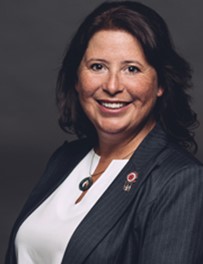
Denise Baxter
Vice-Provost, Indigenous Initiatives
Lakehead University
vp.ii@lakeheadu.ca
Denise has served as Vice Provost Indigenous Initiatives since 2017. She also teaches in both the Department of Indigenous Learning and Department of Continuing Education. She is completing her PhD in Equity and Indigenous Education at York University. As an established education leader, Denise has worked in multiple contexts including public school boards, the Ministry of Education, Lakehead University, and First Nations private schools for the past 29 years. Within each of these contexts, she has built capacity and partnerships with multiple community stakeholders. Her work with the community has involved education conferences, workshop presentations, and traditional pedagogy. She currently serves on the following boards: YES Employment, Children’s Centre Thunder Bay, the Thunder Bay Police Services Governance Committee, Keewatin Patricia DSB and a provincial EDI advisory committee.
A Marten Falls First Nation member, she maintains that preserving and practicing cultural traditions and ceremony keeps her connected to the community, Indigenous cultures, traditions, and protocols. She works to establish networks, strengthen relationships with Indigenous communities and governments, and build capacity between Indigenous, public, and private partners which have supported multiple initiatives that advance educational outcomes for Indigenous students.
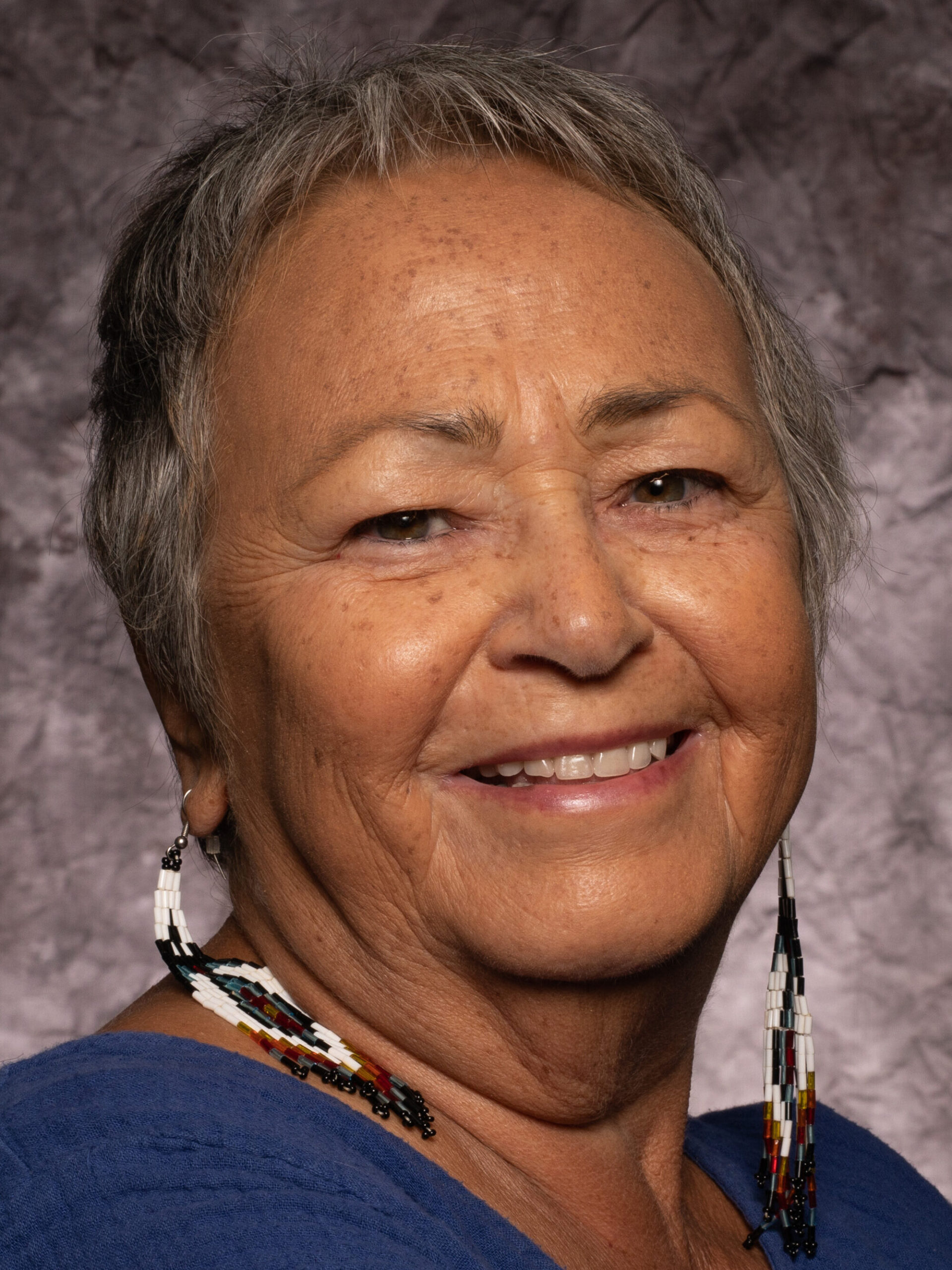
Jean Becker
Associate Vice-President Indigenous Relations
University of Waterloo
j2becker@uwaterloo.ca
Jean Becker is Inuk, a grandmother, and a member of the Nunatsiavut Territory of Labrador. She has lived and worked in Southern Ontario for over 40 years. She is the AVP Indigenous Relations at the University of Waterloo and has worked in post-secondary education for more than 30 years. Actively involved in advocacy for Indigenous people outside of the academy, Jean is passionate about her work to implement decolonization in the academy.
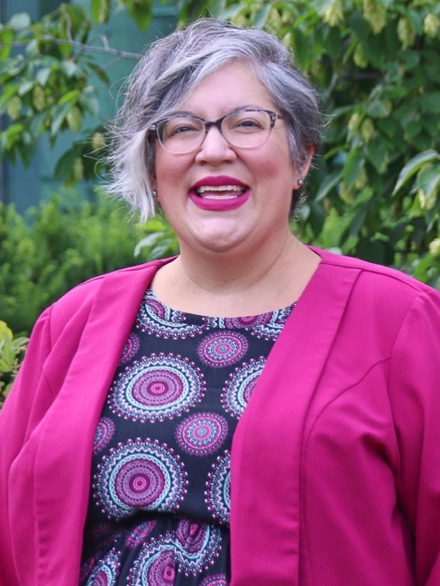
Dr. Robyn Bourgeois
Vice-Provost, Indigenous Engagement
Brock University
vpindigenous@brocku.ca
Dr. Robyn Bourgeois was appointed Brock University’s Acting Vice-Provost, Indigenous Engagement in October 2020, and was formally hired into this role in November 2022. She is an associate professor in the Centre of Women’s and Gender Studies and is affiliated with the graduate programs in Critical Sociology and Social Justice and Equity Studies.
Robyn is nêhiyaw iskwew (a Cree woman) from Treaty Eight territory, born and raised in Syilx and Splats’in territories, of mixed Nêhiyaw, French, English, and Scottish ancestry. She is also connected through her three children and adopted family to the Six Nations of the Grand River. As a survivor of multiple forms of violence including sex trafficking, Robyn has spent almost twenty years involved in community organizing and activism addressing violence against Indigenous women, girls, and 2SLGBTQQIA people. She is also an artist who dabbles in multiple genres including hand drumming, painting, drawing, and film.
Trained as a sociologist and social justice educator, Dr. Bourgeois’ scholarly foci include violence against Indigenous women and girls, Indigenous women’s anti-violence resistance, and Indigenous women and leadership. Having published and presented nationally and internationally, Robyn was called to testify as an expert and experiential witness on sexual violence and human trafficking for the National Inquiry on Missing and Murdered Indigenous Women and Girls in 2018. Dr. Bourgeois is the founder of the Decolonial Reading Circle (DRC) which since 2019 has led collective readings and discussion of the final report of the National Inquiry and other Indigenous content (books, films, oral presentations) in the Niagara region. She also serves as a board member for the Nii’kinaaganaa Foundation, a grassroots organization that collects rent from settlers and redistributes it to Indigenous peoples.
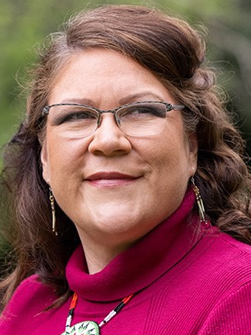
Dr. Christy Bressette
Vice-Provost & Associate Vice-President (Indigenous Initiatives)
Western University
cbresse@uwo.ca
Christy R. Bressette is Western’s first Vice-Provost & Associate Vice-President (Indigenous Initiatives). Christy—whose Anishinabek name is Neeta-Noo-Kee Kwe (Hard-Working Woman)—joined Western on March 1, 2021, after serving as the National Coordinator for Indigenous Education with the Council of Ministers of Education, Canada since 2008. Serving with passion and commitment over the past two decades, Christy has also supported area Anishinabek, Haudenosaunee, and Lenape Nations, as well as Friendship Centres, within work to advance education outcomes for Indigenous learners in the areas of policy, curriculum, and governance.
As one of the first Indigenous women to earn a PhD in Educational Studies from Western, where she also earned her BA (Honours) in History and BEd (with distinction), Christy has strong ties to Western. In addition to teaching at the primary and secondary level in Ontario and British Columbia, she has also taught several graduate-level courses related to Indigenous culture and education in Western’s Faculty of Education since 2004. In 2017/18, she co-chaired the Provost’s Task Force on the Implementation of Western’s Indigenous Strategic Plan (2017/18). Throughout her career, Christy has demonstrated an astute ability for bridging cultural differences between people to help ensure inclusive, equitable, and quality education opportunities for all.
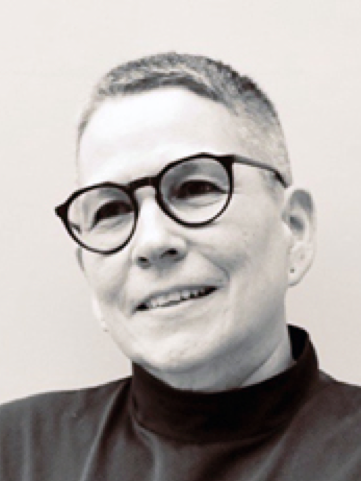
Dr. Susan Dion
Associate Vice-President, Indigenous Initiatives
York University
Sdion@edu.yorku.ca
Professor Dion is a Lenape and Potawatomi scholar with mixed Irish and French ancestry and was the first Indigenous tenure-track faculty member to be hired in the Faculty of Education at York. Professor Dion joined York in 2001 and was appointed to the rank of full professor this year (2021).
Dr. Dion has led numerous research projects including nIshnabek de’bwe wIn // telling our truths, (SSHRC, 2017) and inVISIBILITY INDIGENOUS IN THE CITY (SSHRC, 2013). She has followed up her successful book Braiding Histories: Learning from Aboriginal People’s Experiences and Perspectives (2009) with Braided Learning: Illuminating Indigenous Presence through Art and Story, expected out in January 2022. She has expertise in the skillful cultivation of equitable and respectful relationships between Indigenous and non-Indigenous peoples.
Professor Dion holds a PhD, MEd and BEd from the University of Toronto, and a BA from the University of Waterloo. She is an internationally respected scholar and researcher in Indigenous relationships and education.
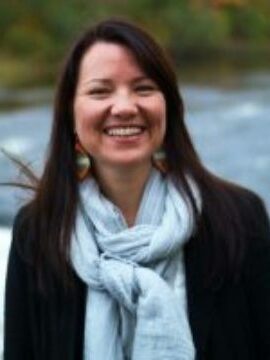
Dr. Kahente Horn-Miller
Assistant Vice-President (Indigenous Initiatives)
Carleton University
KahenteHornMiller@cunet.carleton.ca
Dr. Kahente Horn-Miller (Kahente means “she walks ahead”) (Kanien:keha’ka/Mohawk) received her doctorate in 2009. She is a mother to four daughters and Aksotha (grandmother). Currently she is an Associate Professor in the School of Indigenous and is the inaugural Assistant Vice-President, Indigenous Initiatives.
Dr. Horn-Miller research and teaching is centred in the development of Haudenosaunee-specific research and pedagogical practices. Her research interests include Indigenous methodologies, Indigenous women, identity politics, colonization, Indigenous governance, and consensus-based decision making. Her governance work and community-based research involves interpreting Haudenosaunee culture and bringing new life to old traditions. Her performance piece We are Her and She is Us, is a modern telling of the Haudenosaunee story of creation that centres on Sky Woman and her fall to earth.
She Co-Chaired the Carleton University Strategic Indigenous Initiatives Committee which resulted in Kinàmàgawin, Carleton’s revitalized Indigenous strategy. In 2018 she initiated the Indigenous Collaborative Learning Bundles project which is successfully increasing Indigenous content in classrooms across disciplines.
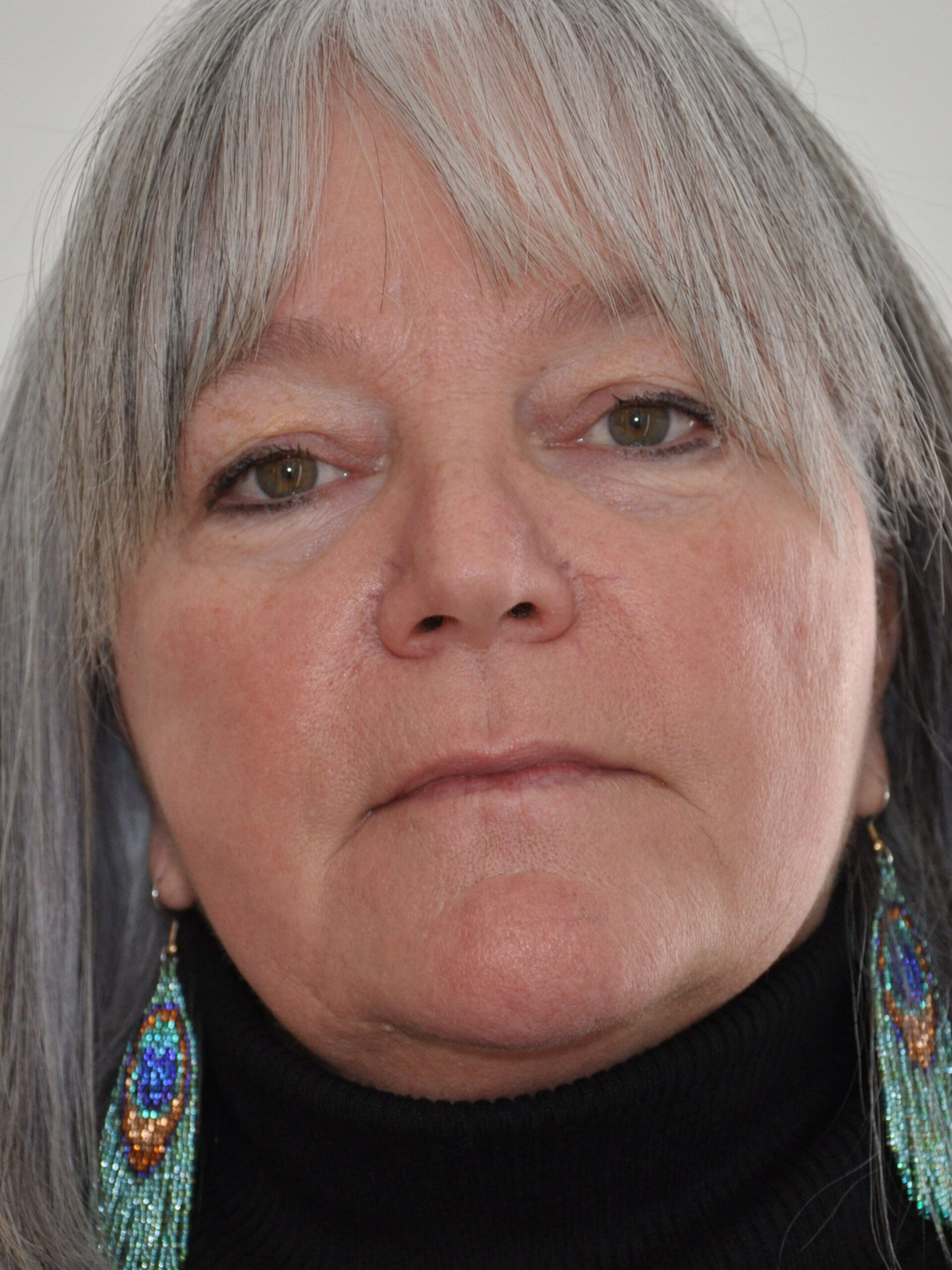
Dr. Lynn Lavallee
Strategic Lead, Indigenous Resurgence, Faculty of Community Services and Professor, School of Social Work
Toronto Metropolitan University
lavallee@torontomu.ca
Dr. Lynn Lavallee is Anishinaabe registered with the Metis Nation of Ontario. She is the Strategic Lead, Indigenous Resurgence in the Faculty of Community Services as well as a Professor in the School of Social Work at the Toronto Metropolitan University. She previously served as the University of Manitoba’s first vice provost Indigenous engagement in 2017. Lynn completed a Bachelor of Arts in Kinesiology and Psychology, Master of Science in Community Health and Doctorate in Social Work. Her research expertise lies in the areas of Indigenous research ethics, Indigenous research methodology, and Indigenous health and well-being. Lynn achieved full professor status in 2019.
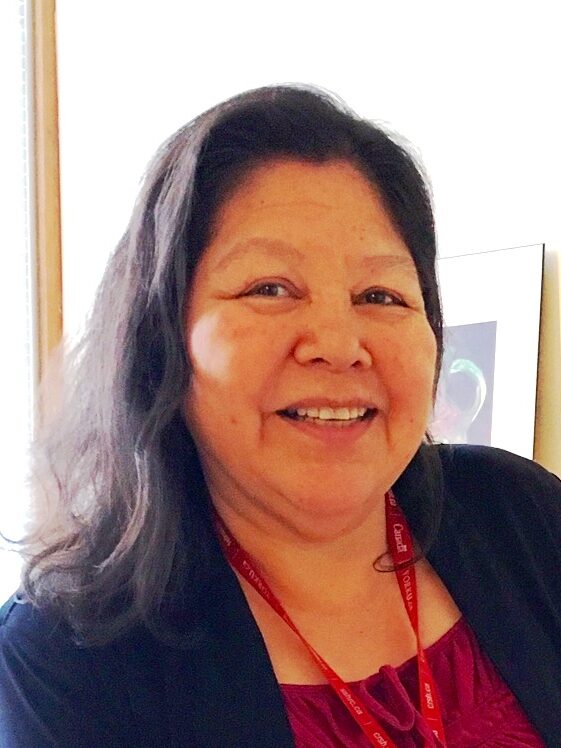
Dr. Susan Manitowabi
Associate Vice-President, Academic and Indigenous Programs (Interim)
Director for the School of Indigenous Relations (Interim)
Laurentian University
smanitowabi@laurentian.ca
Susan Manitowabi is Anishinaabe-kwe from Whitefish River First Nation. She is currently the Director of the School of Indigenous Relations at Laurentian University. She served as the Interim Associate Vice President – Indigenous and Academic Programs and Founding Director of the School of Indigenous Relations at Laurentian University from December 2020-July 2022. She has been a professor in the School of Indigenous Relations since 2003. Her PhD focuses on the engagement of the “Raising the Spirit” Mental Wellness Team First Nations with First Nations mental health programs. She is a long-time member of the Manitoulin Anishinaabe Research Review Committee.
She was a member on the National Council on Ethics in Human Research (NCEHR). Her research interests include: Indigenous mental health; traditional Indigenous healing practices; Indigenous child welfare; Indigenous research; and Indigenous mental health policy development and community development.
Her contributions to on-line learning include the development of a flexible weighting option for on-line learners as well as the development of an open education resource – the Historical and Contemporary Realities: Movement Towards Reconciliation.
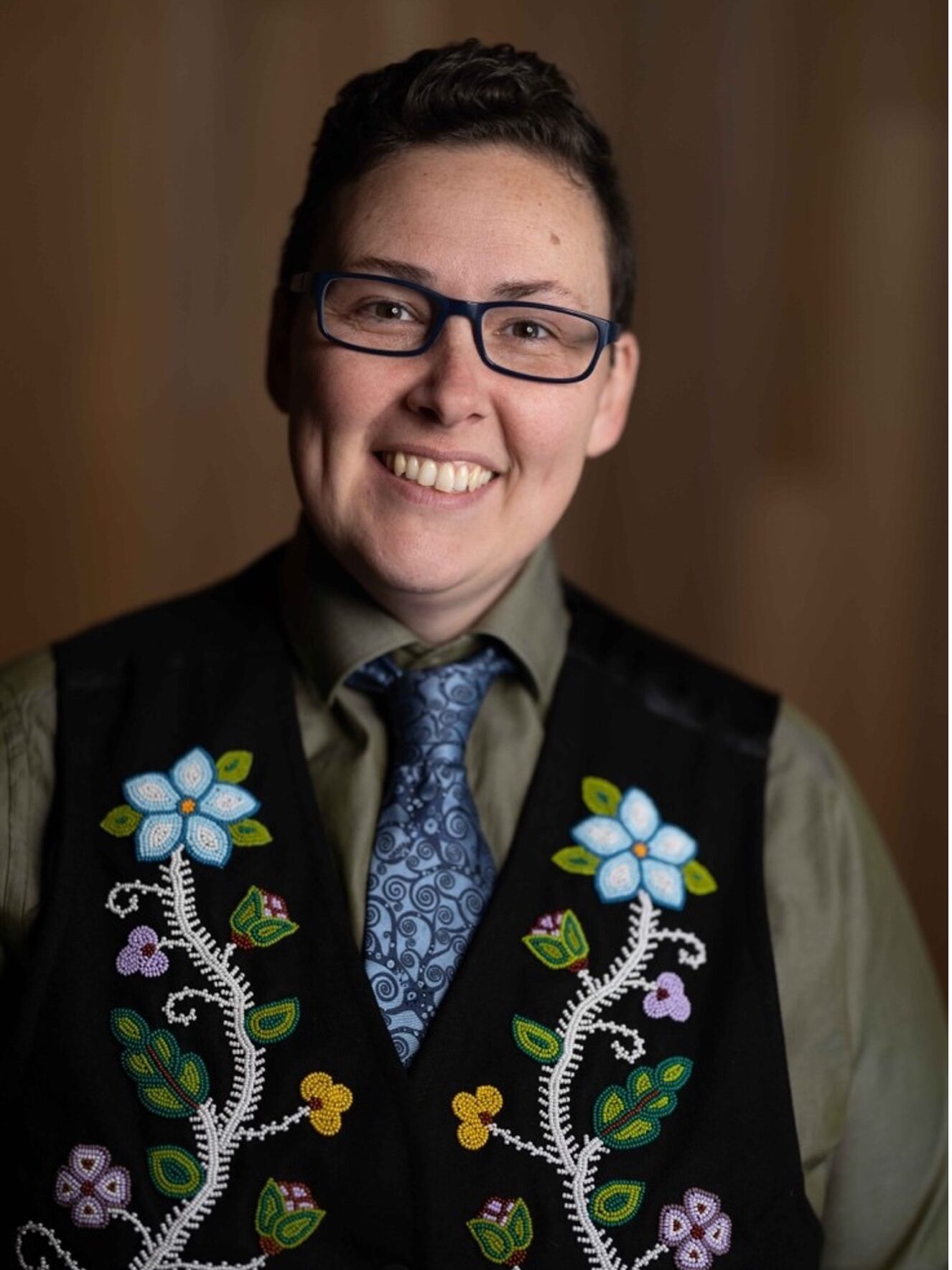
Benny Michaud
Director, Centre for Indigenous Initiatives
Carleton University
bennymichaud@cunet.carleton.ca
Benny Michaud is Michif on her maternal side and is originally from St. Boniface in Manitoba. She is a proud Two-Spirit and Eagle Clan person and is a citizen of the Metis Nation. Residing in Algonquin territory (Ottawa) for the past 12 years, she serves as Director of the Centre for Indigenous Support and Community Engagement at Carleton University.
At the heart of her teams’ work is nurturing relationships between communities and the university, and ensuring that Indigenous students have the academic, spiritual, and emotional supports necessary for wellbeing. Over the course of her career she has worked to support the needs of Indigenous young adults in both the mental health and education sectors. Benny’s community-centred work includes being an advocate and educator on Metis worldviews and Two-Spirit realities.
Benny also serves as Adjunct Professor in the School of Indigenous and Canadian Studies at Carleton and teaches the only Metis-specific course offered.
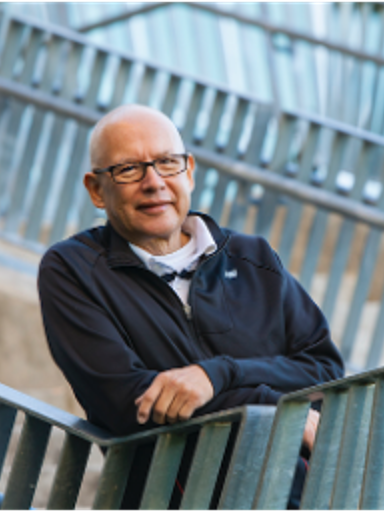
David Newhouse (Onondaga)
Professor, Indigenous Studies
Director, Chanie Wenjack School for Indigenous Studies
Trent University
dnewhouse@trentu.ca
David Newhouse is Onondaga from the Six Nations of the Grand River community near Brantford, Ontario. He is Professor of Indigenous Studies at Trent University in the Chanie Wenjack School for Indigenous Studies and Professor of Business Administration in the School of Business Administration. He has been Chair of the Department of Indigenous Studies, now the Chanie Wenjack School for Indigenous Studies, since 1993.
His research interests focus on the emergence of modern Indigenous society, focusing on emerging Indigenous communities. He also teaches 1600 students per year in two first year courses in Indigenous Studies.
He is the founding editor of two peer reviewed journals: CANDO Journal of Aboriginal Economic Development and aboriginal policy studies, a journal devoted to urban Indigenous issues. He is editor of 7 books on Indigenous issues and author of 25 book chapters, 50 journal articles and more than 150 keynote invited talks. He has supervised 17 PhD students and 24 MA students. He has been awarded more than $9.0M in research funding from public and private sources.
He was awarded a 3M National Teaching Fellowship for teaching innovation in 2022. He was awarded the Trent University Teaching Award for Educational Leadership and Innovation in 2016. He has served for the last decade on the Executive Committee for the Trent University Faculty Association: three years as president. He currently serves as grievance officer. He is the former chair (now a member) of the Aboriginal Working Group of the Canadian Association of University Teachers. Locally, he serves on the board of directors for the Nogojawong Friendship Centre in Peterborough as Vice-President and in the past as Treasurer of the National Association of Friendship Centres and the Ontario Federation of Indigenous Friendship Centres and is the Co-Chair of the Trent Indigenous Education Council. He is the Co-Chair of the SSHRC Indigenous Advisory Circle and the Science Officer for the CIHR Indigenous Peoples Health Research competitions. He current serves as the Chair of the Indigenous Advisory Board of Katimavik, a national youth service organization.
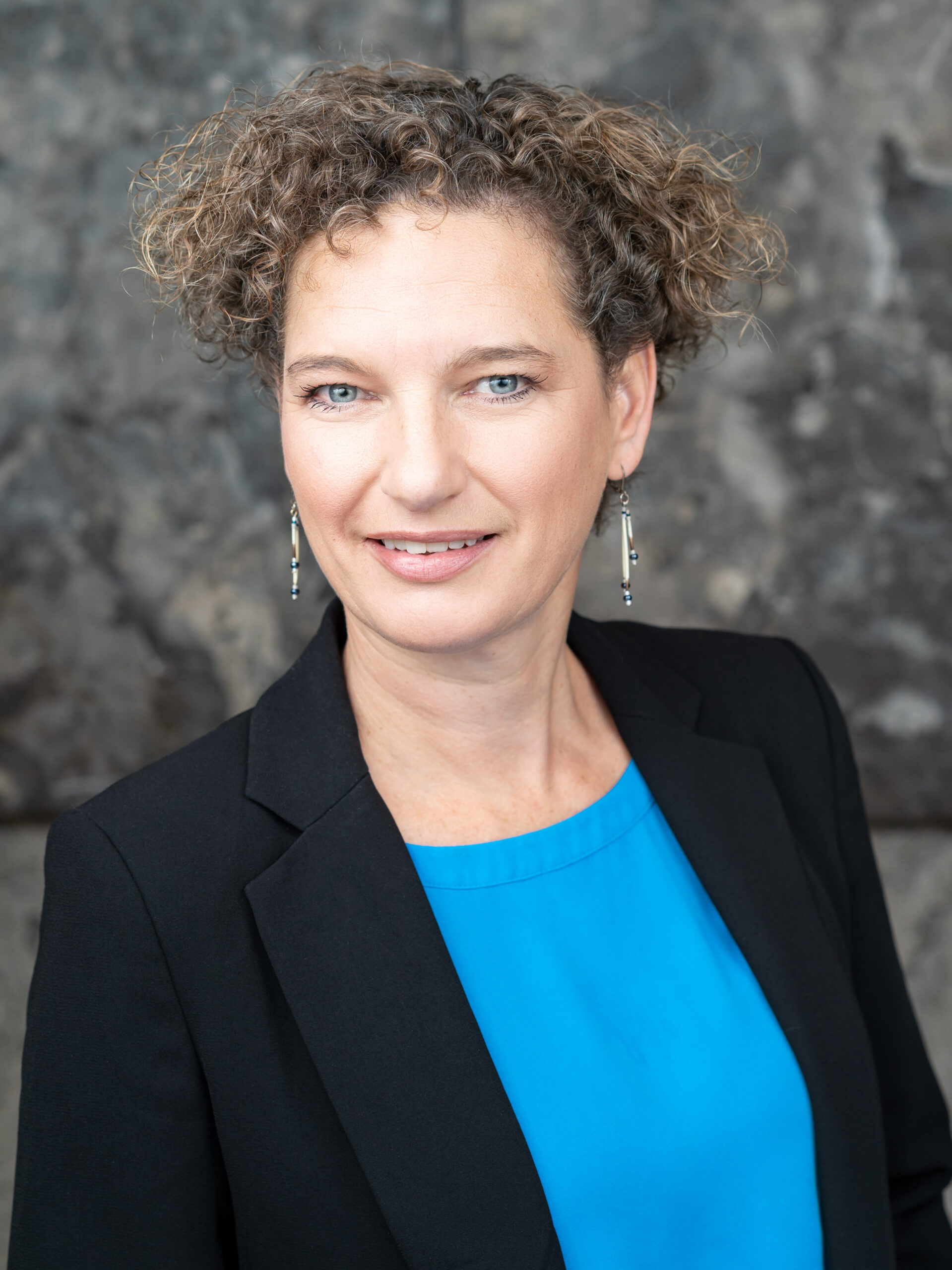
Shannon Simpson
Senior Director, Office of Indigenous Initiatives
University of Toronto
shannon.simpson@utoronto.ca
Shannon Simpson is Anishinaabe and Scottish and is a member of the Michi Saagiig of Alderville First Nation. She has been working at the University of Toronto since 2003 in a variety of positions, including several years at the Indigenous Student Services at First Nations House. In 2020 she joined the Office of Indigenous Initiatives and is currently the Senior Director, Indigenous Initiatives of this institutional office.
Prior to joining U of T, Simpson worked for several years supporting Indigenous community members in Toronto, through her involvement at Anduhyaun Inc. working at their emergency shelter, second stage housing and crisis centre. She has served as a board member of Na Me Res, and is currently a community council member of both the Toronto Birth Centre and Aboriginal Legal Services.
Simpson’s current work leads and supports the implementation of the 34 Calls to Action as outlined in the report: Answering the Call: Wecheehetowin, across all three campuses at the University of Toronto.
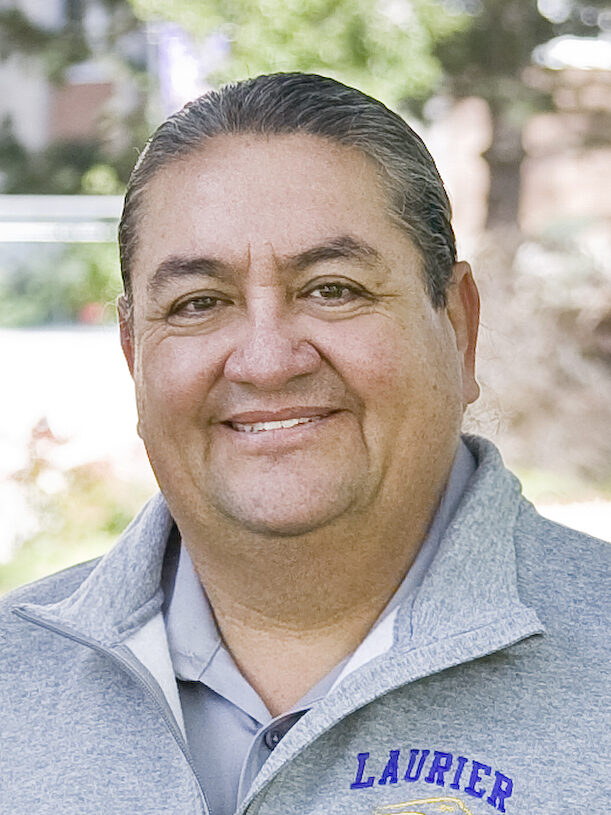
Dr. Darren Thomas
Associate Vice-President, Indigenous Initiatives
Wilfred Laurier University
dthomas@wlu.ca
Dr. Darren Thomas is a member of the Seneca Nation, and is Bear Clan and resides at the Grand River Territory of the Haudenosaunee. Darren is an Associate Professor in the Indigenous Studies Program and in July 2021 accepted an appointment as the Associate Vice-President of Indigenous Initiatives at Wilfrid Laurier University. As a senior leader of Indigenous Initiatives at Laurier, he manages a team of staff that has the responsibility to support Indigenous students, staff, and faculty to reach their highest potential, while developing a strategic vision and implementation for Indigenization, decolonization, and reconciliation.
Darren’s personal research interests are: Indigenous thought and philosophy, Indigenous community development, strengthening and improving Indigenous health and well-being, Indigenous law, and Indigenous rights and resource governance.
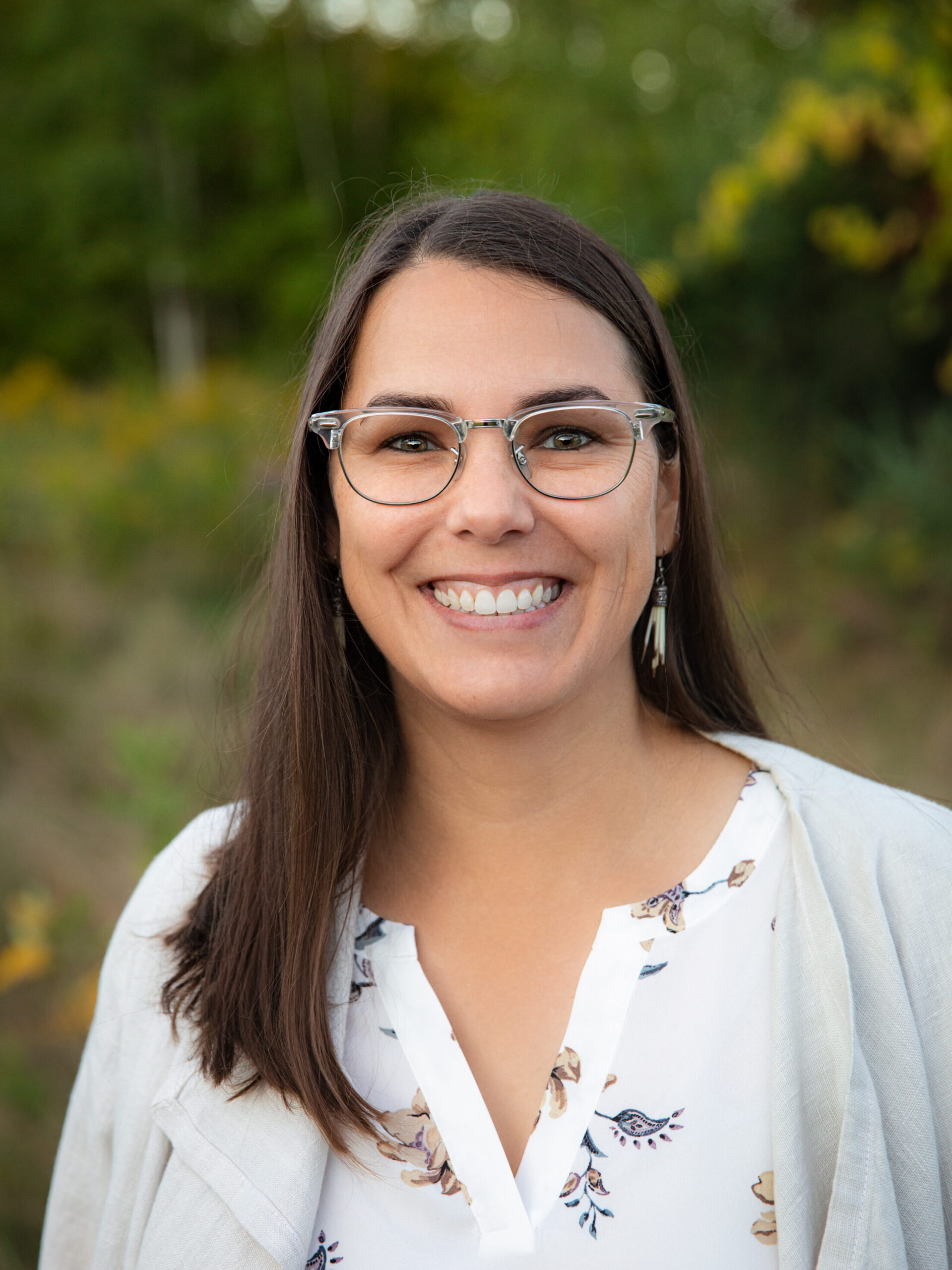
Dr. Cara Wehkamp
Assistant Vice-President (Indigenous Initiatives)
University of Guelph
cwehkamp@uoguelph.ca
Dr. Cara Wehkamp (she/they) is Algonquin Anishinàbe with family, community, kinship ties in the upper Ottawa Valley. She grew up on Robinson Huron Treaty lands and has lived and worked within the Dish with One Spoon territory for close to 30 years.
Cara is the AVP (Indigenous Initiatives) at the University of Guelph. She is a higher education and student affairs professional with interests in land based relationships and food sovereignty; Indigenous identity and well-being; and reconciliation and decolonization in education.
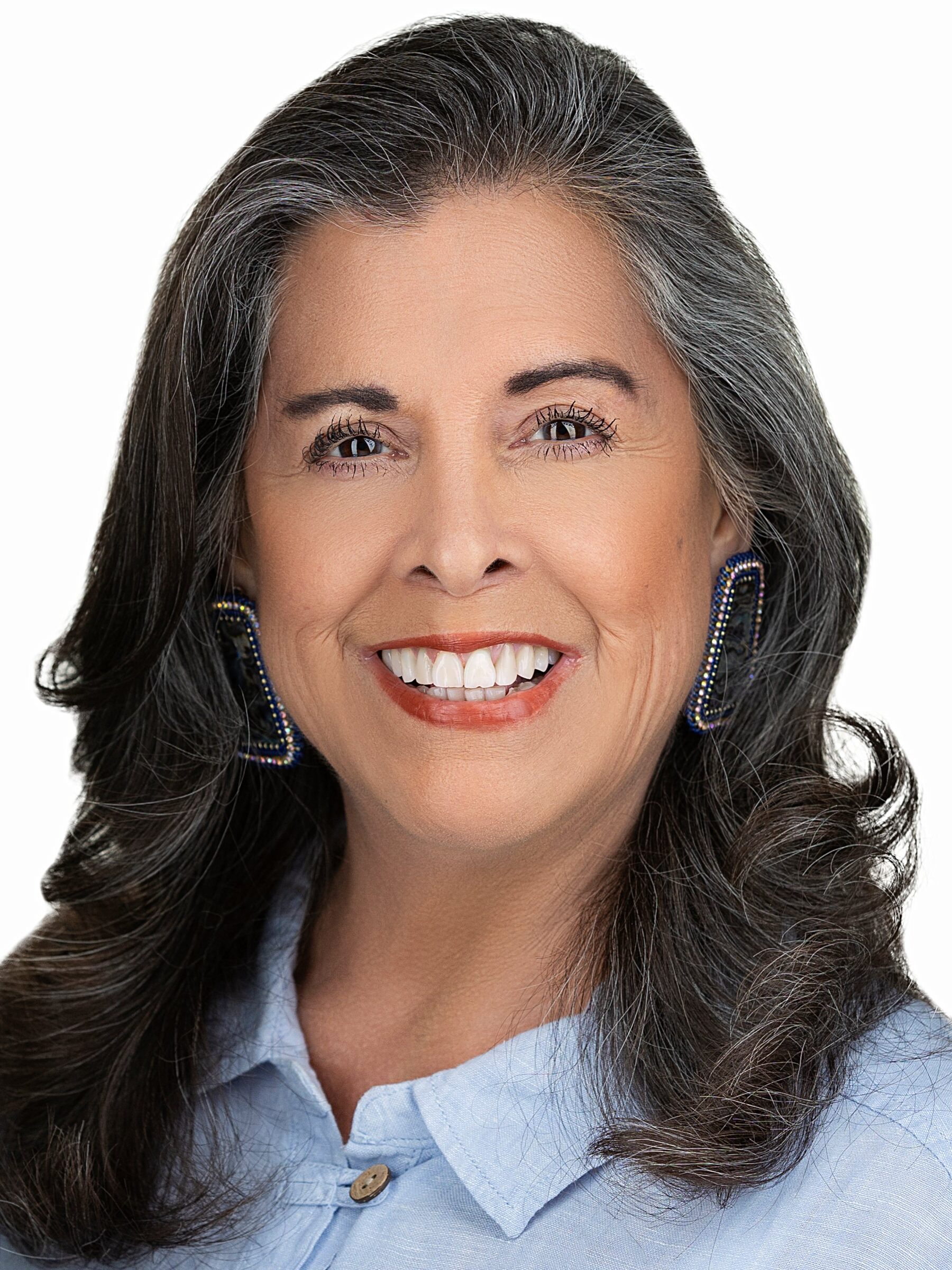
Dr. Cynthia Wesley-Esquimaux
Chair on Truth and Reconciliation
Lakehead University
cynthia.wesley@lakeheadu.ca
Dr. Cynthia Wesley-Esquimaux served as Vice Provost for Indigenous Initiatives at Lakehead University for three years. Effective September2016 she was appointed the 1st Indigenous Chair for Truth and Reconciliation in Canada for Lakehead University and continues to develop pathways forward to reconciliation across Canada.
Cynthia was inducted as a “Honourary Witness” by the Truth and Reconciliation Commission of Canada in 2014 and is Chair of the Governing Circle for the National Centre for Truth and Reconciliation at the University of Manitoba.
She is a member and resident of the Chippewa of Georgina Island First Nation in Ontario and has dedicated her life to building bridges of understanding. She sees endless merit in bringing people from diverse cultures, ages, and backgrounds together to engage in practical dialogue and applied research initiatives.
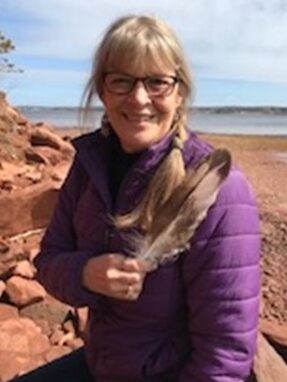
Corinne Chappell
Advisor to the Vice-President Academic and Research on Indigenous Affairs
University of Prince Edward Island
cchappell@upei.ca
Ms. Corinne Chappell, member of the Mi’kmaq First Nations, joined UPEI as the Advisor to the VPAR on Indigenous Affairs in 2021. Her work includes planning, developing, and implementing Indigenous initiatives at UPEI. This includes providing guidance on stakeholder collaborations and helping to develop a better understanding of and response to the Calls to Action that relate to post-secondary education as outlined in the Truth and Reconciliation Commission of Canada’s final report. Ms. Chappell has played an important role in the development of the new Faculty of Indigenous Knowledge, Education, Research, and Applied Studies.
Ms. Chappell holds Master of Education degrees from both UPEI and St. Francis Xavier University and is a Doctor of Education student at Western University. She has been teaching for over 20 years at the high school level. She co-founded and chaired the PEITF Aboriginal Education Advisory Committee and is a member the National Indigenous University Senior Leaders’ Association, based at First Nations University of Canada.
Ms. Chappell is also widely regarded as a Mi’kmaq artisan, creating garments and art pieces that blend traditional styles with modern fashion.
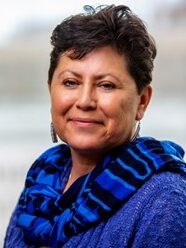
Dr. Kahérakwas Donna Goodleaf
Director, Decolonizing Curriculum and Pedagogy
Concordia University
donna.goodleaf@concordia.ca
Kahérakwas Donna Goodleaf is Turtle Clan, citizen of the Kanien’kehá:ka nation and lives in the community of Kahnawake. Served as a former committee member for the Kahnawake Education Center Research and Ethics Committee, former Board member for the Kahnawake Combined School Committee, and former board member for the Kahnawake Kateri Memorial Hospital Board. She is currently employed as the Director Decolonizing Curriculum and Pedagogy in the Centre for Teaching and Learning, Concordia University.
She currently serves on the Indigenous Directions Leadership Council, Concordia University.
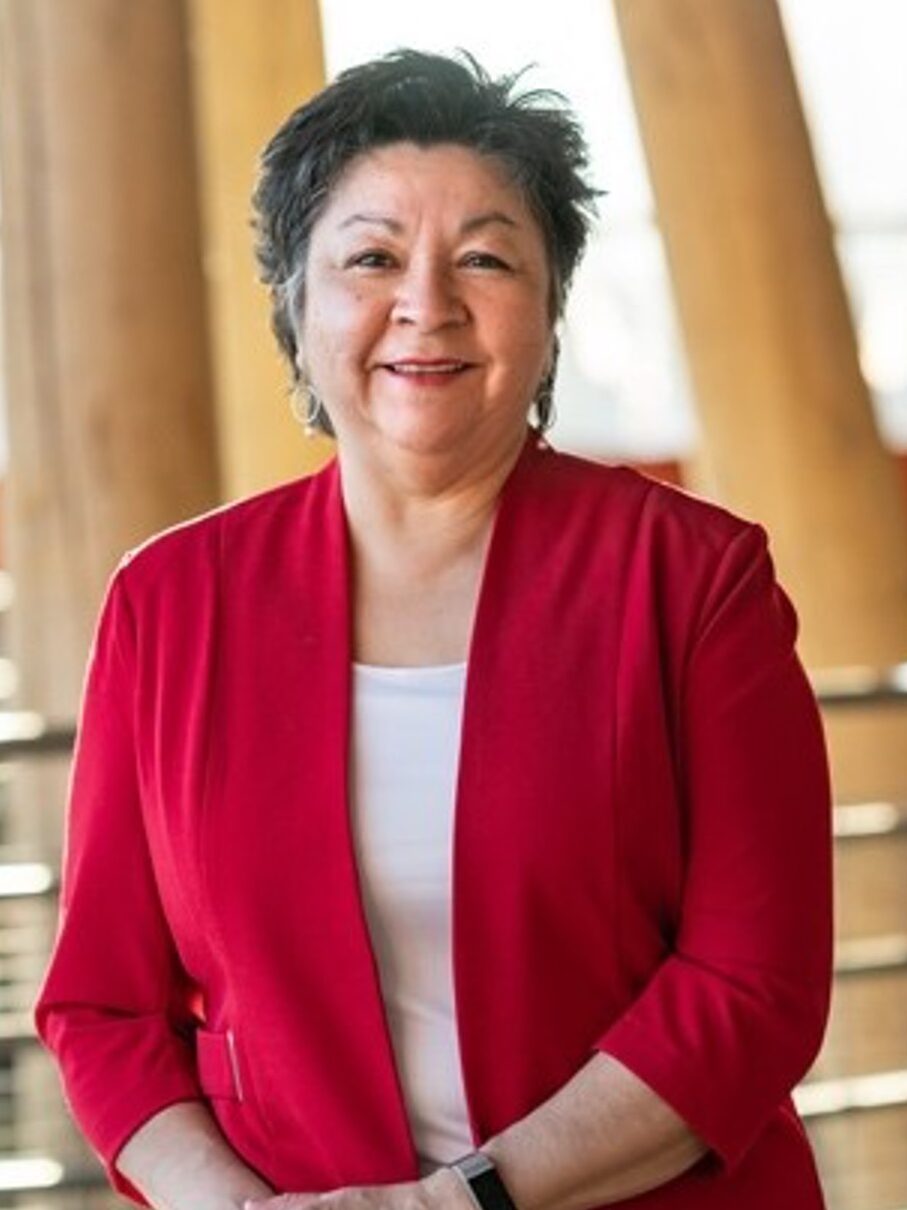
Janet Mark
Strategic Advisor on Reconciliation and Indigenous Education
Université du Québec en Abitibi-Témiscamingue
janet.mark@uqat.ca
Janet Mark is a member of the Cree Nation and holds a Bachelor’s degree in Early Childhood Education and a Master’s degree in Psycho-Education. Since 2002, she has held various positions at UQAT. She also occupied the positions of director and vice-president of the Board of the Val-d’Or Native Friendship Centre from 2007 to 2017 and member of the Conseil supérieur de l’éducation du Québec from 2010 to 2015. In Northern Quebec, she worked as teacher, assistant principal and principal for the Cree School Board. For her exceptional contribution, she was received as a member of the Cercle d’excellence du réseau de l’Université du Québec in 2006.
In 2016, the Cree Women’s Association of Eeyou Istchee presented her with an award of recognition for her work in education.
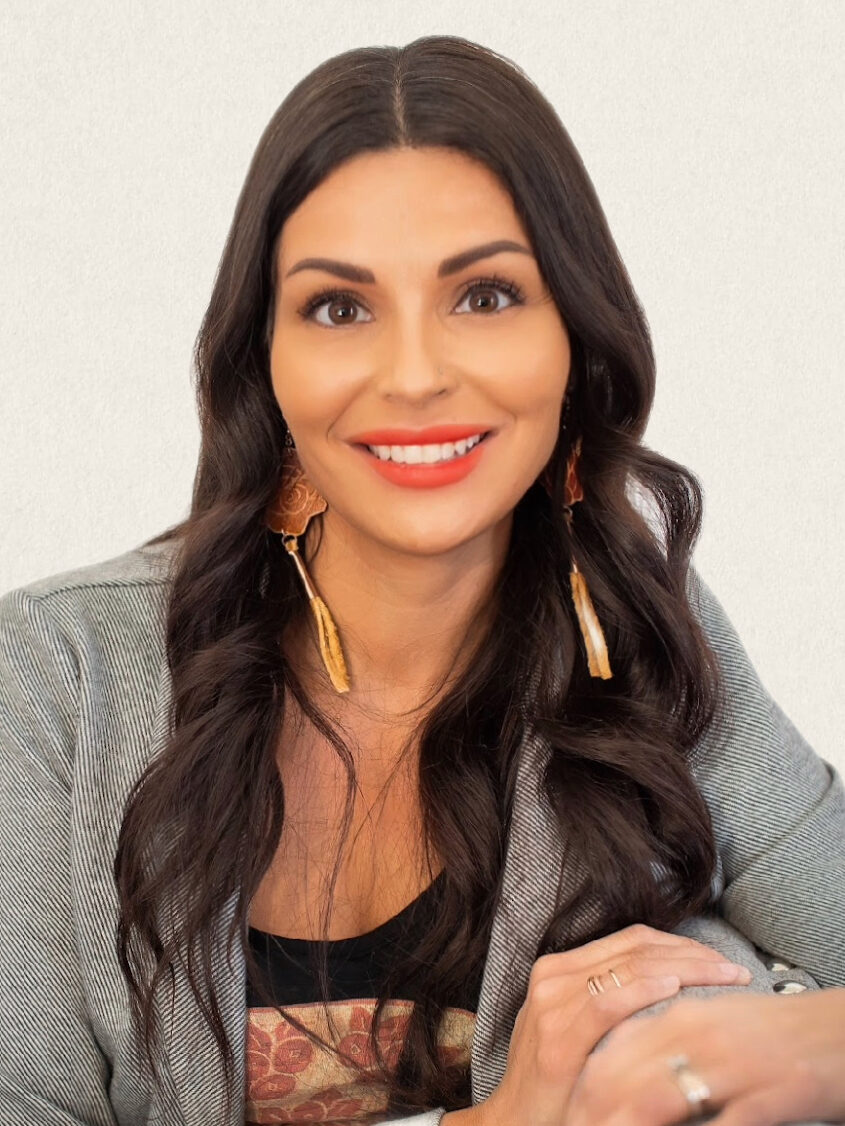
Dr. Celeste Pedri-Spade
Associate Provost (Indigenous Initiatives)
McGill University
celeste.pedri-spade@mcgill.ca
Celeste Pedri-Spade is an Anishinaabekwe and member citizen of Nezaadiikaang (Lac des Mille Lacs First Nation) located in Treaty 3 territory. In 2022, Celeste became McGill University’s first Associate Provost of Indigenous Initiatives and in this role she oversees the University’s ongoing response to the 52 Calls to Action articulated by the Provost’s Task Force on Indigenous Studies and Indigenous Education. She also holds a faculty position in the Department of Anthropology.
Before arriving at McGill, she was the Queen’s National Scholar in Indigenous Studies at Queen’s University. Celeste began her academic career at Laurentian University where she served as an associate professor and the inaugural Director of the Maamwizing Indigenous Research Institute.
Her current research interests include Anishinaabe gikendaasowin, critical pedagogies and identity politics, the role of Indigenous visual/material culture in decolonial praxis, and the materiality of Anishinaabemowin. Celeste received her PhD in Visual Anthropology from the University of Victoria.
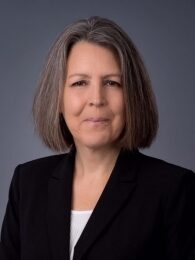
Manon Tremblay
Senior Director, Indigenous Directions
Concordia University
manon.tremblay@concordia.ca
Manon Tremblay is a nêhiyaw-iskwêw (Plains Cree) from the Muskeg Lake Cree Nation. She stepped into her role as Senior Director, Indigenous Directions in December 2019. Prior to joining the Office of the Provost, Manon was the Director, Indigenous Research at the Social Sciences and Humanities Research Council of Canada (SSHRC) where she led the initiative to build Indigenous research capacity. She also held the position of Senior Project Leader for the Public Service Commission of Canada’s Aboriginal Centre of Expertise where she worked in strategic Indigenous recruitment programs and Indigenous talent management.
Manon has dedicated her career to Indigenous education and is a recipient of the 2016 Public Service Award of Excellence.
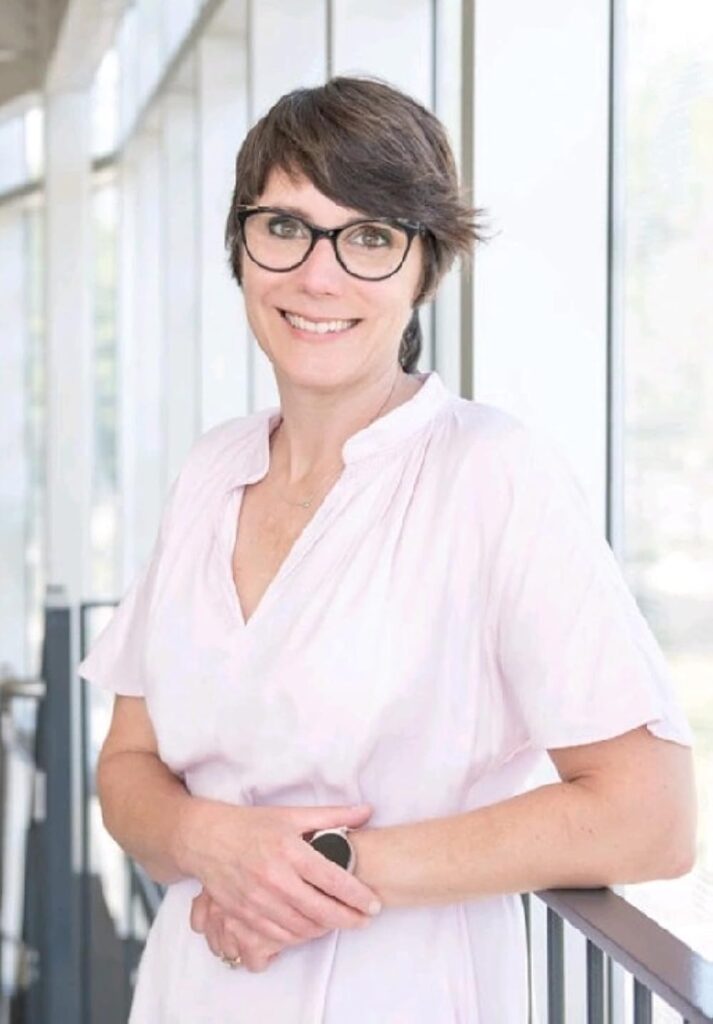
Annie Pullen Sansfaçon
Associate Vice-President, Relations with First People
University of Montreal
a.pullen.sansfacon@umontreal.ca
Annie Pullen Sansfaçon (member of the Huron Wendat Nation) is Associate Vice-President for Relations with First People at the University of Montreal in Tiohtià:ke /Montreal. She is also Professor at the University of Montreal’s School of Social Work and hold the Canada Research Chair ReParE on Partnership Research and Empowerment of Vulnerable youth. She is the cofounder and co-director of CRI-JaDE, the Interdisciplinary Research Center on Intersectional Justice, Decolonization and Equity.
Her research program aims at understanding how different structures and contexts affect the wellbeing of gender diverseyouth, including two spirit youth.
Rooted in anti-oppressive and trans affirmative perspectives, she proposes interventions and methodologies that support their empowerment.
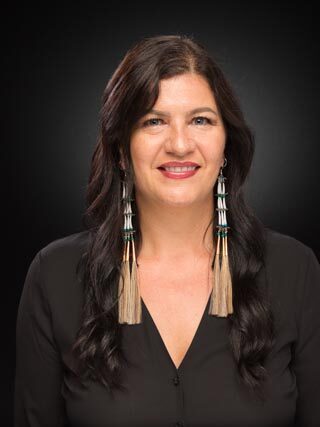
Lori Campbell
Associate Vice-President, Indigenous Engagement
University of Regina
Lori.Campbell@uregina.ca
Lori is Two-Spirit and is a member of Montreal Lake First Nation, Treaty 6 territory. She is an inter-generational survivor of the Indian Residential School system and a child from the Sixties Scoop generation. Lori has made it her career advocating for social justice and working towards a more equitable society for all.
With over 15 years of progressive leadership in student services, academics, research and administration, Lori is an experienced leader in education. Through the sharing of her lived experiences, traditional knowledge, and professional proficiencies she provides uncomfortable truths required for advancing processes of Indigenization, decolonization, and reconciliation within organizations and communities.
Lori holds two undergraduate degrees (Indigenous Studies and Psychology), a master’s degree in Adult Education and is a PhD candidate in Social Justice Education. She currently holds the position of Associate Vice-President, Indigenous Engagement at the University of Regina.
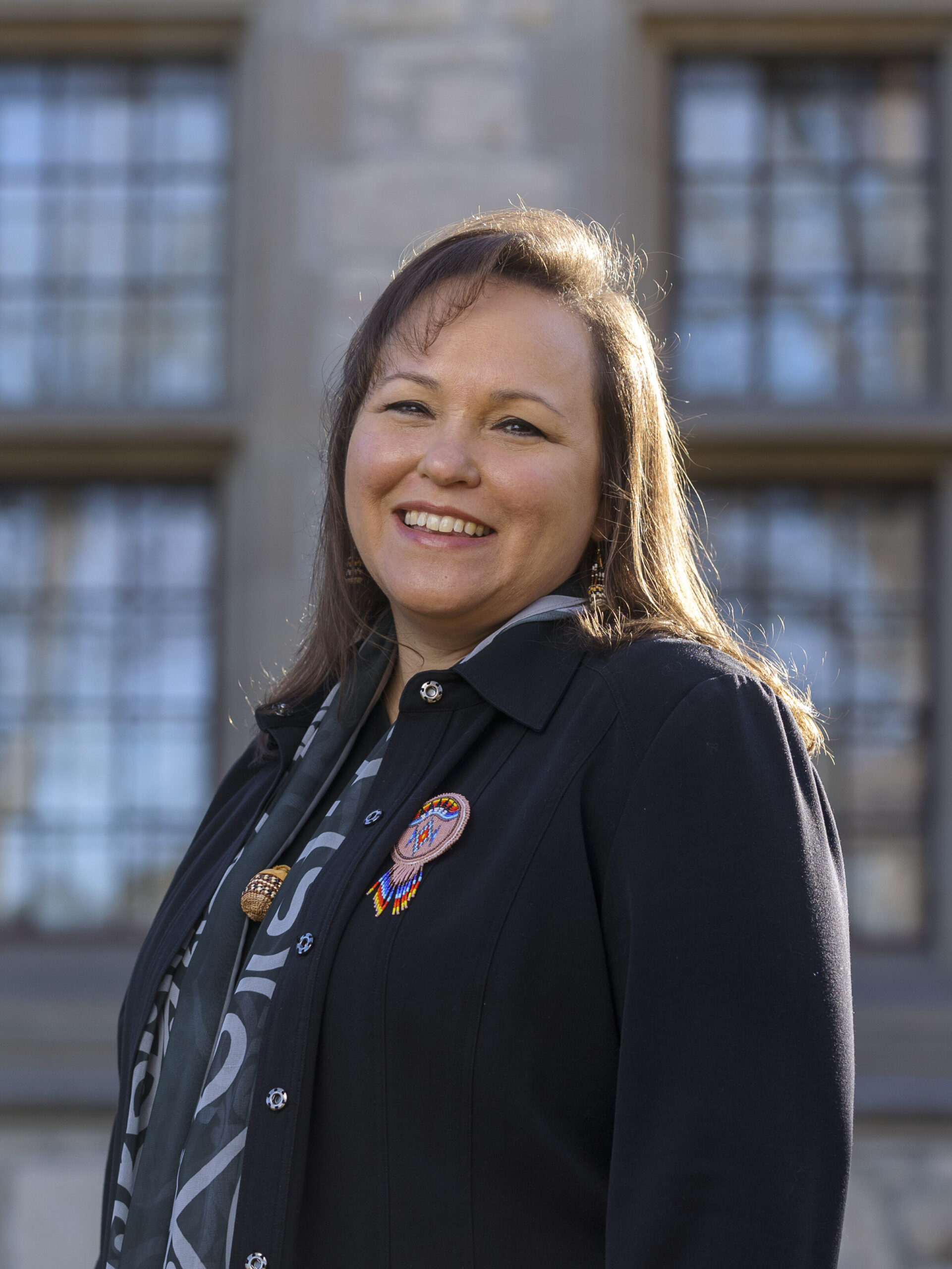
Dr. Angela Jaime
Vice-Provost Indigenous Engagement
University of Saskatchewan
Angela.jaime@usask.ca
Dr. Angela M. Jaime (enrolled member of the Pit River tribe) is the interim Vice Provost, Indigenous Engagement and a Professor in Indigenous Studies at the University of Saskatchewan. Dr. Jaime arrived in Saskatoon July 2020 after accepting the position of the Vice Dean, Indigenous for the College of Arts and Science. Dr. Jaime spent 16 years at the University of Wyoming (Laramie, Wyoming) as Professor in and Director of Native American & Indigenous Studies and Associate Director of the School of Culture, Gender, and Social Justice. Dr. Jaime has been teaching, consulting and researching in the areas of diversity, equity, inclusion, anti-racism/anti-oppression, critical race theory, social justice and Indigenous Education for more than 25 years.
Dr. Jaime completed her doctorate at Purdue University in 2005 and her master’s degree from San Francisco State University’s College of Ethnic Studies in 1997. Her areas of research are in critical race theory, Indigenous education, Native women and their experiences in higher education, and research methodology through an Indigenous and anti-racist/anti-oppression lens. She promotes social justice by critically examining systematic racism/oppression and discrimination of Indigenous people and people of colour in higher education.
Most importantly, she is a mother of two amazing boys.
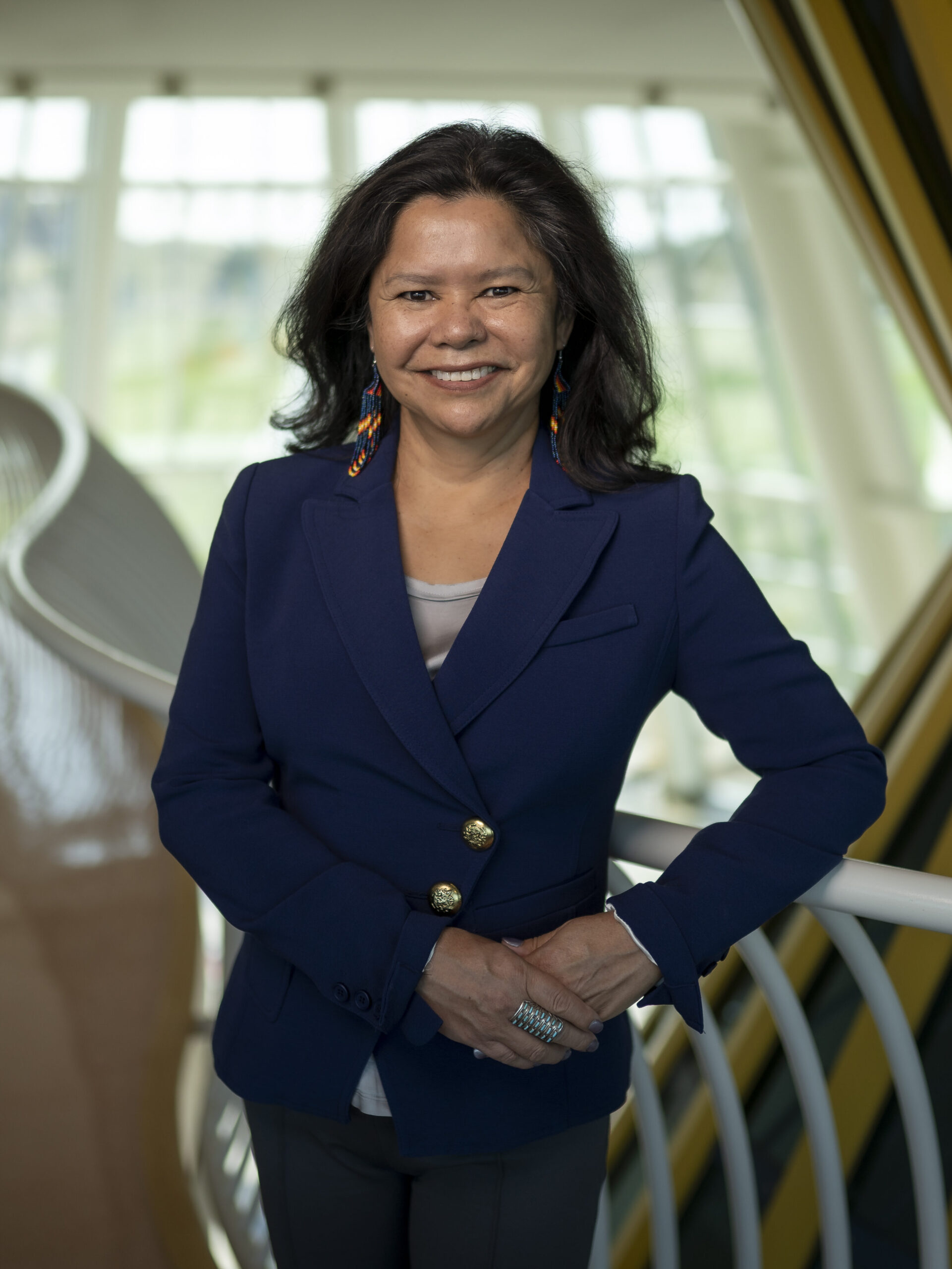
Mizowaykomiguk paypomwayotung Dr. Jacqueline Ottmann
President
First Nations University of Canada
jottmann@firstnationsuniversity.ca
Mizowaykomiguk paypomwayotung Dr. Jacqueline Ottmann is Anishinaabe (Saulteaux) from Fishing Lake First Nation in Saskatchewan. Prior to her academic career, Jackie was an elementary, high school teacher and principal. She remains an engaged scholar alongside her responsibilities as a senior academic leader. While at the University of Calgary, she was the Coordinator of the First Nations, Métis, Inuit undergraduate teacher education program, and Director of Indigenous Education Initiatives within the Werklund School of Education (WSE). She also co-chaired the WSE Indigenous Strategy, and alongside the Provost, the university-wide Indigenous Strategy.
After her time with the University of Saskatchewan as Professor and Vice-Provost Indigenous Engagement, Jacqueline Ottmann was appointed President of the First Nations University of Canada. Ottmann has been recognized as an international researcher, advocate, and change-maker whose purpose is to transform practices inclusive of Indigenous leadership, methodologies, and pedagogies. Jacqueline is driven to create schools and communities that foster a deeper sense of belonging and appreciation for Indigenous peoples – their histories, stories, ways of knowing and being. Ottmann is also the first Indigenous person to become President of the Canadian Society for the Study of Education.
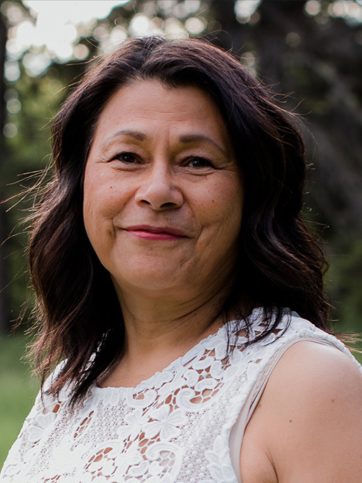
Dr. Verna St. Denis
Special Advisor to the President on Anti-Racism and Anti-Oppression
University of Saskatchewan
verna.stdenis@usask.ca
Verna St. Denis is special advisor to the president on anti-racism/anti-oppression at the University of Saskatchewan, where she has taught undergraduate and graduate courses in integrated anti-racist education for many years. She is both Cree and Metis and a member of the Beardy’s and Okemasis First Nation.
Dr. St. Denis is a widely sought-after speaker on the topic of racism in education. Her research and scholarship are in anti-racist and Indigenous education, and she has published extensively on these topics.
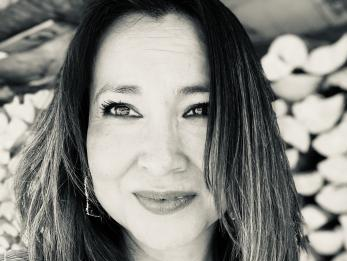
Gä̀gala-ƛ̓iƛ̓ətko Nadia Joe
Associate Vice-President Indigenous Engagement and Partnerships
Yukon University
njoe@yukonu.ca
Gä̀gala-ƛ̓iƛ̓ətko Nadia Joe (u- /a- /Dä̀n) has become the new Associate Vice-President Indigenous Engagement and Partnerships at Yukon University. Gä̀gala is a member of the Crow Clan from the Champagne & Aishihik First Nations and the daughter of Dä Ké (Dave Joe) and Niketko (Mary Jane Joe).
She has spent the past 14+ years working as an environmental professional and supporting Indigenous communities across Canada advancing their rights and interests in water security through various water co-management initiatives. A Gordon Foundation Jane Glassco Northern Fellow and Trudeau Foundation mentor, Gä̀gala has dedicated her professional career to applying respectful and practical ways to protect Indigenous knowledge and heritage. As a child of the Yukon land claims movement, she was raised by a river and loved into leadership by the many elders, leaders, mentors of the nłe?kepmx and southern Tutchone-Tlingit peoples.